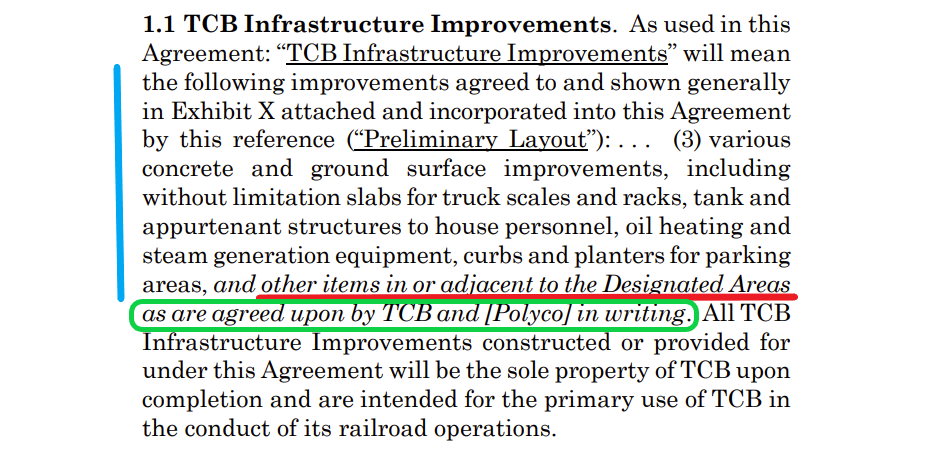 Following up on the Orca opinion’s memorable warning about “red flags” and justifiable reliance, in American Midstream v. Rainbow Energy Marketing Corp. the Texas Supreme Court held that “[t]he e courts below impermissibly blue-penciled extra words into … the contract that gave rise to this dispute …” (specifically, reading the contract as if the words “scheduled” and “physical” appeared in a key contract term about deliveries). No. 23-0384 (Tex. May 23, 2024).
Following up on the Orca opinion’s memorable warning about “red flags” and justifiable reliance, in American Midstream v. Rainbow Energy Marketing Corp. the Texas Supreme Court held that “[t]he e courts below impermissibly blue-penciled extra words into … the contract that gave rise to this dispute …” (specifically, reading the contract as if the words “scheduled” and “physical” appeared in a key contract term about deliveries). No. 23-0384 (Tex. May 23, 2024).
Category Archives: Contract
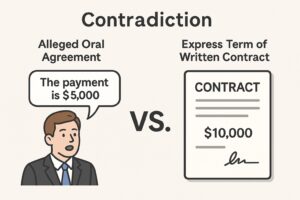 In Roxo Energy, LLC v. Baxsto, LLC, LLC, the Texas Supreme Court addressed (again) the element of justifiable reliance, in the context of alleged oral promises that contradicted written agreements.
In Roxo Energy, LLC v. Baxsto, LLC, LLC, the Texas Supreme Court addressed (again) the element of justifiable reliance, in the context of alleged oral promises that contradicted written agreements.
Specifically, the Court held that claims based on oral representations about the lessee’s intent to develop the mineral lease, rather than “flip” it, failed ecause the written lease expressly let the lessee transfer its interest with no obligation to drill or develop the land. The Court emphasized that “an unqualified contractual right to transfer a lease contradicts a prior oral promise not to do so,” making reliance on such oral promises unjustifiable.
The Court also rejected claims based on alleged misrepresentations about bonus payments. The only written commitment about bonus payments was a “most favored nations” clause, which was not breached. The Court explained that the absence of any language in the written agreements confirming the alleged oral representations about bonus amounts was itself a “red flag negating justifiable reliance””–“[T]he prudent response is to demand that the parties’ discussions be reflected in the writing—not to sign an agreement that makes no mention of the promises and then try to hold your counterparty to them anyway.”
No. 23-0564, Tex. May 9, 2025.
In Luxottica of Am., Inc. v. Gray, the Court of Appeals addressed the element of justifiable reliance in the context of fraud and related claims arising from the sale of franchise stores.
The Court held that the existence of clear contractual disclaimers and “as-is” provisions in the relevant agreements conclusively negated the element of justifiable reliance, which is required to prove claims for common-law fraud, civil conspiracy, and statutory
fraud. Specifically, the court pointed to language in the franchise and purchase agreements stating that the buyer “did not rely on any incidental statements about success made by [Luxottica], its affiliates or employees” and that the business was being conveyed “AS IS WHERE IS, WITHOUT WARRANTY EXPRESSED OR IMPLIED.” No. 05-23-00020-CV (May 5, 2025) (mem. op.). (LPHS represented the successful appellant in this case.)
 Davis v. Homeowners of Am. addressed the enforceability of a contractual limitations period in an insurance policy.
Davis v. Homeowners of Am. addressed the enforceability of a contractual limitations period in an insurance policy.
The Fifth Court held that the policy’s provision requiring suit to be filed within two years and one day from the date the claim is accepted or rejected, or three years and one day from the date of the loss, did not violate Texas Civil Practice and Remedies Code § 16.070(a).
The Court distinguished this case from Spicewood Summit Office Condos Ass’n v. Am. First Lloyds Co. noting that the policy in Davis did not impermissibly shorten the limitations period to less than two years, as the trigger date was based on the claim’s acceptance or rejection rather than the date of loss. No. 05-24-00035-CV, Apr. 7, 2025 (mem. op.).
 McDonald v. Four Rivers Devel., LLC, discussed yesterday on a procedural point, also addressed the distinction between a condition precedent and a covenant within a contract. The Fifth Court held that a 25% profit margin requirement for commission payments was not a condition precedent but rather a covenant or term of the contract.
McDonald v. Four Rivers Devel., LLC, discussed yesterday on a procedural point, also addressed the distinction between a condition precedent and a covenant within a contract. The Fifth Court held that a 25% profit margin requirement for commission payments was not a condition precedent but rather a covenant or term of the contract.
It explained, “We do not view the 25% profit margin requirement as a condition precedent that would require a specific denial. The provision – commissions calculated at 6% for any job sold by McDonald in which the overall profit on the job was 25% or more – was the measure of calculating commissions, i.e., a covenant or term of the contract.”
A condition precedent is an event that must occur before a right can accrue to enforce an obligation, while a covenant is an agreement to act or refrain from acting in a certain way. The court emphasized that this did not indicate an “if this, then that” scenario, as typical of a condition precedent. Instead, the 25% profit margin was a term used to calculate commissions, making it a covenant. No. 05-24-00431-CV (March 28, 2025) (mem. op.).
 Texas law favors arbitration agreements – but even the most favorable view of the topic requires an agreement. In Exencial Wealth Advisors, LLC v. Sipes, the relevant contract required a signature to become effective, and the record did not contain a signed copy of that instrument. Therefore, the contract failed for lack mutual assent, and arbitration of the parties’ dispute was not required. No. 05-24-00964-CV (Jan. 31, 2025) (mem. op.).
Texas law favors arbitration agreements – but even the most favorable view of the topic requires an agreement. In Exencial Wealth Advisors, LLC v. Sipes, the relevant contract required a signature to become effective, and the record did not contain a signed copy of that instrument. Therefore, the contract failed for lack mutual assent, and arbitration of the parties’ dispute was not required. No. 05-24-00964-CV (Jan. 31, 2025) (mem. op.).
 The parties’ lease in Lamar Advantage Outdoor Co. v. LaCore Enterprises, LLC contained this provision, which the Fifth Court held to create a right of first refusal (as opposed to a purchase option):
The parties’ lease in Lamar Advantage Outdoor Co. v. LaCore Enterprises, LLC contained this provision, which the Fifth Court held to create a right of first refusal (as opposed to a purchase option):
If LESSOR desires to sell or otherwise transfer any Interest in the property upon which the sign is situated, LESSOR grants LESSEE an option to purchase a perpetual easement (servitude) encompassing the sign and the access, utility service and visibility rights set forth herein. LESSEE must elect to exercise this option within thirty (30) days after written notification of LESSOR’s desire to sell. LESSEE’S failure to exercise this option within said period shall be a waiver of this option. …
Following an earlier Fifth Court case about a similar clause, the Court held that because this provisision was not “limit[ed to] the right of first refusal to the first sale or transfer of the Property or contemplating waiver of the right if not utilized in conjunction with prior transactions.” No. 05-23-00210-CV (Dec. 31, 2024) (mem. op.).
A party sought to avoid the effect of a “prevailing party” attorneys’ fee provision in MRT of Kemp TX-SNF, LLC v. Lloyd Douglase Enterprises LC. The Fifth Court disagreed:
“MRT is not a party to PSA 1. But MRT embraced PSA 1 by seeking to enforce its terms. By doing so, MRT subjected itself to the entirety of the terms of PSA 1, including the attorney’s fee provision in Article 28.”
No. 05-23-00574-CV (Sept. 5, 2024).
 Madonna reached #2 on the charts in 1985 with “Material Girl.” In Bain & Schindele Tax Consulting, LLC v. EW Tax & Valuation Group, LLP, the Fifth Court found that when the trial court found a party’s breach of a non-solicitation obligation to be material and unjustified, it erred by not fully excusing the other contracting party from further performance of the contract obligations (in that case, certain note payments). No. 05-23-00560-CV (Aug. 7, 2024).
Madonna reached #2 on the charts in 1985 with “Material Girl.” In Bain & Schindele Tax Consulting, LLC v. EW Tax & Valuation Group, LLP, the Fifth Court found that when the trial court found a party’s breach of a non-solicitation obligation to be material and unjustified, it erred by not fully excusing the other contracting party from further performance of the contract obligations (in that case, certain note payments). No. 05-23-00560-CV (Aug. 7, 2024).
 At issue in Robinson v. Boral Windows LLC was the scope of a release, which addressed “any and all actions … from the beginning of time to the present, including any and acts or omissions occurring to date … specifically includ[ing] without limitation all matters arising out of … the Employment Agreement ….” After a comprehensive review of case law involving similar terms, the Fifth Court held:
At issue in Robinson v. Boral Windows LLC was the scope of a release, which addressed “any and all actions … from the beginning of time to the present, including any and acts or omissions occurring to date … specifically includ[ing] without limitation all matters arising out of … the Employment Agreement ….” After a comprehensive review of case law involving similar terms, the Fifth Court held:
- The release was not limited to the identified Employment Agreement, given the other, broader language in the release;
- For similar reaons, the release included claims based on two other instruments, even thought they were not specificaly identified in the release;
- The release extended to a successor-in-interest to one of the parties, by operation of law and because it had a standard “all predecessors, successors [and] assigns” clause.
No. 05-22-01184-CV (June 10, 2024) (mem. op.).
 A popular meme shows Oprah Winfrey giving cars away to everyone in sight. In Pack Properties XIV, LLC v. Remington Prosper, LLC, the Fifth Court found fact issues all ’round, and held that all parties summary-judgment motions should be denied in a dispute about a contract related to the establishment of a car dealership. Two key points were:
A popular meme shows Oprah Winfrey giving cars away to everyone in sight. In Pack Properties XIV, LLC v. Remington Prosper, LLC, the Fifth Court found fact issues all ’round, and held that all parties summary-judgment motions should be denied in a dispute about a contract related to the establishment of a car dealership. Two key points were:
- Under Fifth Court precedent, the term “affiliate” in a contract “is generally defined as a ‘corporation that is related to another corporation by shareholdings or other means of control’ and as a ‘company effectively controlled by another or associated with others under common ownership or control.'” Applying that precedent, the record presented a fact issue about “whether sufficient control” existed among the relevant parties.
- “Materiality” arises in two distinct settings. In one, “a court must determine if the parties’ agreement is sufficiently certain to be an enforceable contract. The question generally arises when the agreement lacks a particular term or contains a term that is unclear. The ultimate issue in this kind of case is the existence of a valid contract, which is a legal question.” In the other, “the question is whether a breach by one party was sufficiently important to excuse the other party’s continuing performance, i.e., the affirmative defense of prior material breach. These cases do not address a missing term and its effect on the validity of a contract; instead, these cases look to the significance of a particular term within the total agreement. Courts performing this analysis address the materiality issue as a fact question.”
The Fifth Court held in Rudnicki v. Thompson Petroleum Corp. that a former oil-company executive was not entitled to indemnity for certain litigation expenses, agreeing with the company’s position that: ““[Partnership’s] Agreement could have provided for indemnification of expenses incurred ‘based on,’ ‘arisin(g from,’ or similarly ‘related to’ a covered person’s performance of the obligations of the GP with respect to [the Partnership]. But that simply is not what it says.” The company was authorized to indemnify the executive, but was not required to do so. No. 05-23-00125-CV (March 20, 2024) (mem. op.).
 In the atypical setting of an appeal from an arbitration award (under the TAA), the Fifth Court concluded that the price set by an option agreement was sufficiently definite:
In the atypical setting of an appeal from an arbitration award (under the TAA), the Fifth Court concluded that the price set by an option agreement was sufficiently definite:
[T]he Option Provision included a formula to determine the purchase price, limiting the purchase price to the greater of the mutually agreed upon appraiser’s calculations, including assumption guidelines for same, or a definite sum of taxes owing, present value of anticipated tax credits not yet received by limited partner, and $100.00. In reaching this conclusion, we reject MHT’s argument that this case is similar to that of Playoff Corp. v. Blackwell, in which the parties entered into an employment contract that promised the employee 25% of a portion of the company’s fair market value upon his termination but did not agree, however, on how the company’s fair market value would be determined, instead agreeing that it would be determined based on a specific formula that the parties would have to agree to in the future after “later negotiations.”
The Court also said: “[W]e agree with other courts that have held that when parties to an agreement specify that a third person is to fix the price, the contract is not unenforceable for lack of definiteness.” Multi-Housing Tax Credit Partners XXXI v. White Settlement Senior Living, LLC, No. 05-22-00721-CV (Jan. 26, 2024) (mem. op.).
 Wakefield, a party to a civil lawsuit, disputed a judgment against him in favor of Rubio, forensic expert retained by his counsel in that lawsuit. Wakefield argued that no evidence established a contract between him and the expert. But the identify of his counsel was undisputed (thus providing some evidence of agency), and additional evidence showed that he ratified his counsel’s dealings with the expert, establishing that he chose to proceed:
Wakefield, a party to a civil lawsuit, disputed a judgment against him in favor of Rubio, forensic expert retained by his counsel in that lawsuit. Wakefield argued that no evidence established a contract between him and the expert. But the identify of his counsel was undisputed (thus providing some evidence of agency), and additional evidence showed that he ratified his counsel’s dealings with the expert, establishing that he chose to proceed:
… after (1) learning Tadlock engaged Rubio to perform expert services with respect to his case, (2) understanding how important the admissibility of evidence from the watch was, (3) personally delivering the watch to Rubio, (4) instructing Rubio to do as his attorney instructed, and (5) learning upon his arrival at the courthouse for his hearing that Rubio’s bill was approaching $10,000.
Wakefield v. Rubio Digital Forensics LLC, Nov. 21, 2023 (mem. op.).
 The Fifth Court reviewed the interplay between the COVID pandemic and a “force majeure” clause in a commercial lease in BB Fit v. EREP Preston Trail II:
The Fifth Court reviewed the interplay between the COVID pandemic and a “force majeure” clause in a commercial lease in BB Fit v. EREP Preston Trail II:
[T]he parties expressly agreed that delays due to enumerated causes beyond the parties’ reasonable control would be excluded from computations of time. They did not agree to discharge BB FIT’s obligation to pay rent; to the contrary, Lease § 4(d) provides that “[t]he obligation of Tenant to pay Rent and the obligations of Tenant to perform other covenants and duties hereunder constitute independent and unconditional obligations of Tenant to be performed at all times as provided hereunder.” We conclude these express terms govern, specifically providing for an extension of time to pay rent rather than a discharge of the obligation.
No. 05-22-00682-CV (Nov. 9, 2023). (Our firm represented the successful party.)
In U.S. Polyco, Inc. v. Texas Central Business Lines Corp., the Texas Supreme Court reversed a contract case based on the definition of ambiguity. The court also rejected an argument for affirmance based on “context,” stating:
The task of harmonizing contracts entails reconciling otherwise conflicting contractual provisions. That task does not authorize courts to ensure that every provision comports with some grander theme or purpose, particularly when the parties have not said in the contract which purpose matters most or that everything else in thecontract should be read subject to that purpose. To hold otherwise would implicitly assume that contracting parties pursue a purpose (at whatever generality) at all costs.
No. 22-0901(footnote omitted).
Note that this concept is distinct from “commercial context”–the circumstances surrounding the execution of a contract, within the reasonable awareness of parties. See, e.g., Kachina Pipeline Co. v. Lillis, 471 S.W.3d 445 (Tex. 2015) (“We may consider the facts and circumstances surrounding a contract, including ‘the commercial or other setting in which the contract was negotiated and other objectively determinable factors that give context to the parties’ transaction.'” (citation omitted)).
In U.S. Polyco, Inc. v. Texas Central Business Lines Corp., the Texas Supreme Court reviewed a contract dispute, and gave a reminder about a basic principle of contract interpretation.
The dispute involved the below language about “other items … as are agreed upon by TCB and [Polyco] in writing” (green, below).
One side contended that it applied only to the “other items” Designated Areas” referred to earlier in the clause (red, below). The other argued that it reached all items listed in the full paragraph (blue, below):
The trial court, court of appeals, and supreme court all agreed that the bettter reading of the “in writing” clause was that it only related to the “other items” (noting, among other matters, the importance of the “Oxford comma”). But the court of appeals found ambiguity, based on its characterization of the parties’ dueling interpretations as reasonable, and that is the point on which the supreme court reversed:
This analysis is erroneous for two basic reasons. First, like all other considerations beyond the contract’s language and structure, parties’ “disagreement” about their intent is irrelevant to whether that text is ambiguous. Parties who find themselves in a business dispute can always claim an extratextual “intent” that would serve a current litigation position. Second, the “multiple, reasonable interpretations” that the court of appeals invoked are illusory. If there were multiple interpretations and a court could not choose among them, then the text would be genuinely ambiguous and there would be no choice but to leave the question to a jury. But the multiple interpretations that the court was referencing here were merely the competing theories that the parties advanced about how to read the text—a dispute that both the trial and appellate courts had ably addressed as a matter of law.
No. 22-0901 (Nov. 3, 2023) (emphasis removed).
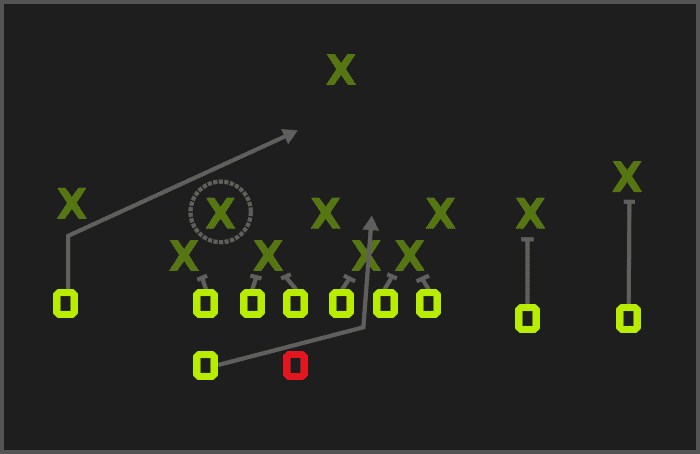 While option agreements are an important part of commercial law, their specific legal requirements are not as frequently litigated as other contract-law concepts. Vertical Holdings, LLC v. LocatorX, Inc. holds that a failure to pay a specified $1,000 price precluded exercise of an option, because:
While option agreements are an important part of commercial law, their specific legal requirements are not as frequently litigated as other contract-law concepts. Vertical Holdings, LLC v. LocatorX, Inc. holds that a failure to pay a specified $1,000 price precluded exercise of an option, because:
Under Texas law, to exercise an option, “strict compliance with the provisions of an option contract is required … [A]cceptance of an option must be unqualified, unambiguous, and strictly in accordance with the terms of the contract.” And “any failure to exercise an option according to its terms, including untimely or defective acceptance, is simply ineffectual, and legally amounts to nothing more than a rejection.
No. 05-22-00720-CV (Sept. 13, 2023) (mem. op.) (citations omitted).
 AMPM Enterprises v. Borders, a dispute about alleged failures to pay for gasoline deliveries to service stations, presented a good example of a basic issue, and an interesting example of a less common one.
AMPM Enterprises v. Borders, a dispute about alleged failures to pay for gasoline deliveries to service stations, presented a good example of a basic issue, and an interesting example of a less common one.
- Proveup. “Here, Borders’ December 23, 2020 affidavit established that he was the vice president of Borders and was responsible for overseeing the maintenance of Borders’ books and records of sales and accounts and was the custodian of such records. The affidavit stated that the table showing a balance of $42,151.82 owed by AMPM and PTE was ‘a true and correct copy of Borders’ records reflecting charges incurred by AMPM and PTE for gasoline delivered to AMPM and PTE’s stores or related fees or services incurred pursuant to the agreement of the parties,’ and the table was ‘created in the ordinary course of business and reflects a systematic record of the amounts owed by AMPM and PTE to Borders.’”
- Performance. “It is not disputed that AMPM and Asghar entered into contracts with Borders in October 2010 to provide fuel at four locations, and Borders continued to provide fuel, and AMPM continued to pay for it, until some time in 2017. Borders and PTE commenced an oral relationship involving requests and delivery of fuel in 2017. During that transactional history, AMPM, Asghar, and PTE did not complain about fees included in the price of fuel or challenge the validity of their contracts with Borders. Under the facts and circumstances of this case, we conclude neither the absence of a price specified in the underlying contracts nor the absence of provisions for the payment of “monthly fees, network fees, and mystery shoppers fees” raised a fact issue as to the amounts owed to Borders under the contracts.”
Aflalo v. Harris arose from a contract to sell a house. The question was (generally) how to calculate the value of the house at the contractually specified sales time, and (specifically) when a later resale of a home can be probative of that value. The Fifth Court reviewed the specific facts of this resale to determine that it was probative, discussing and distinguishing Barry v. Jackson, 309 S.W.3d 135 (Tex. App.–Austin 2010, no pet.) (LPHS represented the successful appellant in this case.)
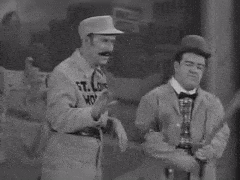 The classic question of “who” was central to Western Healthcare LLC v. Herda, which involved the role of a “contractual delay” provision as a defense to a suit alleging a failure to pay certain workers: “[Plaintiffs] contended that because the work stoppage at issue affected Ellwood, rather than WHC, it should not defeat their claims. But the contractual provision does not specify that a particular employer must undergo a work stoppage to trigger its application; Ellwood’s closure certainly stopped the Providers’ ability to work at its hospital, which was the work bargained for in their contracts.” No. 05-21-00603-CV (Feb. 10. 2023) (mem. op.) (emphasis added).
The classic question of “who” was central to Western Healthcare LLC v. Herda, which involved the role of a “contractual delay” provision as a defense to a suit alleging a failure to pay certain workers: “[Plaintiffs] contended that because the work stoppage at issue affected Ellwood, rather than WHC, it should not defeat their claims. But the contractual provision does not specify that a particular employer must undergo a work stoppage to trigger its application; Ellwood’s closure certainly stopped the Providers’ ability to work at its hospital, which was the work bargained for in their contracts.” No. 05-21-00603-CV (Feb. 10. 2023) (mem. op.) (emphasis added).
 In a Tarot deck, the “Magician” (right) has the power to transform. In the Fifth Court, however, the phrase “reasonable and necessary” is not a “magic word.”
In a Tarot deck, the “Magician” (right) has the power to transform. In the Fifth Court, however, the phrase “reasonable and necessary” is not a “magic word.”
In a construction-contract dispute, even though “no witness explicitly testified that the expenses incurred were reasonable and necessary,” the Court reversed a JNOV and reinstated judgment on the jury’s verdict when the evidence allowed the jury to infer that the costs incurred were reasonable and necessary. That evidence included:
- detailed invoices;
- presented by a witness with extensive relevant experience;
- with a contract-based incentive to not incur excessive expense;
- general consistency with an estimate presented by the other side.
Bosque v. Barbosa, No.05-22-00230-CV (Jan. 30, 2023) (mem. op.). (Congrats to my LPHS colleague Greg Brassfield who tried the underlying case and successfully argued this appeal!)
These events produced a triable fact issue about whether the parties renewed a lease:
- On March 1, Property Manager emails Tenant about lease renewal, noting that “rent will be increasing to $2,275/month” from the current $2,200 monthly amount.
- That same day, Tenant responds that “yes, I would like to renew the lease. I will follow up this weekend with more information.”
- On March 12, Tenant sent a lengthy email about problems with her air conditioning, claimed roughly $4000 dollars in damages as a result, and ended: “I still intend to renew the lease and this settlement offer does not constitute a counter offer or rejection to your lease renewal offer on March 1 ….”
- On March 13, Property Owners’ counsel sent a notice of termination.
The Fifth Court noted: “Under the common law, an acceptance may not change or qualify the material terms of the offer, and an attempt to do so results in a counteroffer rather than an acceptance.” Bismar v. Mitchell, No. 05-21-00104-CV (Jan. 27, 2023) (mem. op.).
 Maersk v. Mgbeowula presented what Maersk (the shipping company) apparently considered to be a collection matter arising from a freight delivery to Nigeria, and what the defendant contended was a problem created by an agent acting without authority. When Maersk’s Texas-law contract claims encountered rough seas at trial, it sought leave to amend with a claim based on maritime law. The trial court denied that request and the court of appeals affirmed, declining to raise that ship by concluding (among other matters) that there had been no trial by consent of such a claim:
Maersk v. Mgbeowula presented what Maersk (the shipping company) apparently considered to be a collection matter arising from a freight delivery to Nigeria, and what the defendant contended was a problem created by an agent acting without authority. When Maersk’s Texas-law contract claims encountered rough seas at trial, it sought leave to amend with a claim based on maritime law. The trial court denied that request and the court of appeals affirmed, declining to raise that ship by concluding (among other matters) that there had been no trial by consent of such a claim:
“[T]he evidence admitted at trial was submitted by Maersk in support of its claims for breach of contract and sworn account under Texas law. Because the evidence was relevant to the pleaded claims, we cannot conclude that a claim under maritime law was tried by consent. … This is particularly so in light of Mgbowula’s objection at the start of trial to the use of any exhibit to invoke maritime law. While the evidence offered by Maersk might be relevant to a cause of action under maritime law, this does not change the fact that the requested amendment asserted a new substantive matter that would have reshaped Maersk’s case.”
No. 05-21-00820-CV (Jan. 20, 2023).
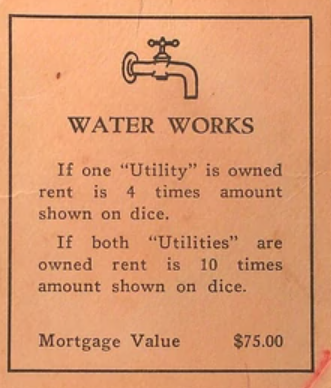 The Fifth Court reviewed a commercial, “triple net” lease in Gaedeke Holdings II v. Chait & Henderson, concluding: “Under the Lease, the fixed amount Uptown paid in the first calendar year of the Lease term does not have any effect on the computation of Uptown’s “Pro Rata Share of Basic Costs” after the first calendar year, and in years two and beyond, Uptown’s “Pro Rata Share of Basic Costs” is based on Gaedeke’s Basic Costs in 2016, subject only to the 6 percent year-over year limitation on increases to Gaedeke’s controllable Basic Costs in 2016.” No. 05-20-01048-CV (Dec. 29, 2022) (mem. op.). An interesting amicus brief discusses different kinds of commercial leases.
The Fifth Court reviewed a commercial, “triple net” lease in Gaedeke Holdings II v. Chait & Henderson, concluding: “Under the Lease, the fixed amount Uptown paid in the first calendar year of the Lease term does not have any effect on the computation of Uptown’s “Pro Rata Share of Basic Costs” after the first calendar year, and in years two and beyond, Uptown’s “Pro Rata Share of Basic Costs” is based on Gaedeke’s Basic Costs in 2016, subject only to the 6 percent year-over year limitation on increases to Gaedeke’s controllable Basic Costs in 2016.” No. 05-20-01048-CV (Dec. 29, 2022) (mem. op.). An interesting amicus brief discusses different kinds of commercial leases.
 Kam v. Adams, an attorney-client dispute about a retainer agreement, produced reference points on basic aspects of summary-judgment practice:
Kam v. Adams, an attorney-client dispute about a retainer agreement, produced reference points on basic aspects of summary-judgment practice:
- “Because Adams’s evidence serves only to raise a fact issue, Kam was not required to offer a response to the motion for summary judgment or contradictory proof. ‘In our summary judgment practice, the opponent’s silence never improves the quality of a movant’s evidence.’” (citation omitted).
- “Although Adams disputes that this was their understanding, he is an interested witness. For the testimony of an interested witness to establish a fact as a matter of law, there must be no circumstances in evidence tending to discredit his testimony. Such circumstances are presented here by Kam’s complete reliance on Thomas in the creation and negotiation of the retainer agreement, as well as the continued negotiations and apparent changes made to the agreement, including to the non-refundable fee specifically, after Kam signed it.”
- In the specific context of intent to form a contract: “Intent is a fact question uniquely within the realm of the trier of fact because it depends upon the credibility of the witnesses and the weight to be given to their testimony.” (citation omitted).
No. 05-21-00871-CV (Nov. 3, 2022) (mem. op.).
Among many other issues, a question in LSC Towers, LLC v. LG Preston Campbell, LLC was whether a lease unambiguously foreclosed an access-easement claim:
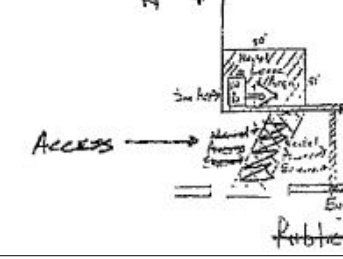 In a (literally) picture-perfect description of ambiguity, the Fifth Court found this diagram ambiguous when “what might be a drawn pathway leading to the cell-tower lot from the south is scratched out, the word ‘Access’ with an arrow pointing to that same area is not scratched out.” No. 05-20-00433-CV (Aug. 30, 2022) (mem. op.).
In a (literally) picture-perfect description of ambiguity, the Fifth Court found this diagram ambiguous when “what might be a drawn pathway leading to the cell-tower lot from the south is scratched out, the word ‘Access’ with an arrow pointing to that same area is not scratched out.” No. 05-20-00433-CV (Aug. 30, 2022) (mem. op.).
The defense of waiver was not conclusively established in a contract dispute when:
“The only evidence we see that could potentially support waiver is the $85,000 check that Ganguly accepted from Kaur Ltd. But we conclude that this evidence does not suffice. Although the check bears the notation “For KERSEVA DEBT,” that notation does not indicate that the funds are being offered as payment in full; thus Ganguly’s acceptance of the check, without more, is no evidence of intent to relinquish Ganguly Holdings’ claim against Ker-Seva or of intentional conduct inconsistent with asserting that claim.”
Ganguly Holdings, LLC v. Ker-Seva, Ltd., No. 5-21-00124-CV (July 29, 2022) (mem. op.)
The Fifth Court provided a valuable reminder about the enforcement of post-litigation agreements in Patel v. Gonzalez Hotels:
“Written settlement agreements may be enforced as contracts even if one party withdraws consent before judgment is entered on the agreement. When consent is withdrawn, however, the agreed judgment that was part of the settlement may not be entered. The party seeking enforcement of the settlement agreement must pursue a separate claim for breach of contract, which is subject to the normal rules of pleading and proof.” (citation omitted).
However, this principle does not apply to all agreements covered by Tex. R. Civ. P. 11, such as stipulations about evidentiary matters, as discussed in this article I co-authored a couple of years ago on the subject. (A big 600Commerce thanks to the able Ben Taylor for drawing this case to my attention!)
 In bringing to an end a long-running international oil-and-gas dispute, the Texas Supreme Court examined a seeming tension between two earlier opinions about the specificity required for an effective release: “‘[W]hile the misrepresentation in Schlumberger “pertained to the very matter negotiated, settled, and released,”‘ the misrepresentation in Forest Oil ‘did not concern known disputed matters (which were settled and released) but potential future disputes (which were set aside and reserved).'” The Court concluded:
In bringing to an end a long-running international oil-and-gas dispute, the Texas Supreme Court examined a seeming tension between two earlier opinions about the specificity required for an effective release: “‘[W]hile the misrepresentation in Schlumberger “pertained to the very matter negotiated, settled, and released,”‘ the misrepresentation in Forest Oil ‘did not concern known disputed matters (which were settled and released) but potential future disputes (which were set aside and reserved).'” The Court concluded:
“Here, the evidence does not suggest that the parties actually considered or discussed allegations that Astra representatives bribed Petrobras officials to approve the 2006 stock-purchase agreement or offered to bribe them to approve the 2012 settlement agreement. But the evidence—including the terms of the settlement agreement itself does establish that the parties entered into the settlement agreement only after an extended series of complex and hotly contested negotiations that included discussions about the need to resolve all prior, pending, and possible claims between the parties, including those that were ‘unknown’ at the time.”
Transcor Astra Group S.A. v. Petrobras America Inc., No. 20-0932 (Tex. April 29, 2022).
 After a split decision from the Fifth Court declined to send a personal-injury case to arbitration, the Texas Supreme Court ruled otherwise in Baby Dolls v. Sotero: “The Family’s argument, and the court of appeals’ holding, that Hernandez and the Club never had a meeting of the minds on the contract blinks the reality that they operated under it for almost two years, week after week, before Hernandez’s tragic death. We hold that the parties formed the agreement reflected in the contract they signed.” No. 20-0782 (Tex. March 18, 2022).
After a split decision from the Fifth Court declined to send a personal-injury case to arbitration, the Texas Supreme Court ruled otherwise in Baby Dolls v. Sotero: “The Family’s argument, and the court of appeals’ holding, that Hernandez and the Club never had a meeting of the minds on the contract blinks the reality that they operated under it for almost two years, week after week, before Hernandez’s tragic death. We hold that the parties formed the agreement reflected in the contract they signed.” No. 20-0782 (Tex. March 18, 2022).
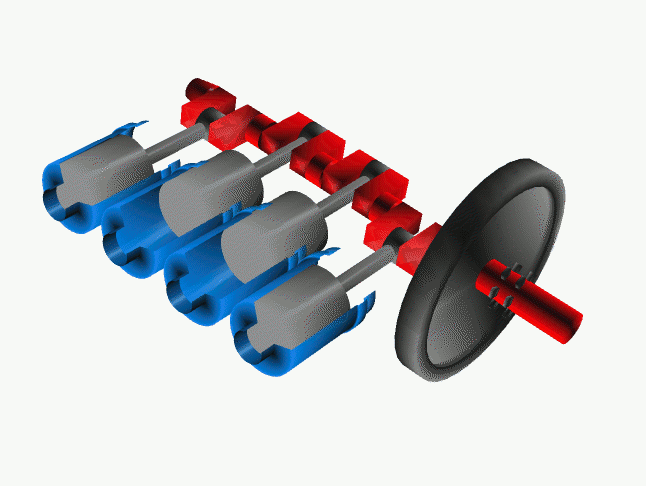 In Hadley v. Baxendale, 8 Exch. 341, 156 Eng. Rep. 145 (1854), the Court of Exchequer held that a miller’s lost profits, arising from the late delivery of a replacement shaft for a steam engine in the mill, were not recoverable as consequential damages in a suit for breach of contract: “But it is obvious that, in the great multitude of cases of millers sending off broken shafts to third persons by a carrier under ordinary circumstances, such consequences would not, in all probability, have occurred, and these special circumstances were here never communicated by the plaintiffs to the defendants. It follows, therefore, that the loss of profits here cannot reasonably be considered such a consequence of the breach of contract as could have been fairly and reasonably contemplated by both the parties when they made this contract.”
In Hadley v. Baxendale, 8 Exch. 341, 156 Eng. Rep. 145 (1854), the Court of Exchequer held that a miller’s lost profits, arising from the late delivery of a replacement shaft for a steam engine in the mill, were not recoverable as consequential damages in a suit for breach of contract: “But it is obvious that, in the great multitude of cases of millers sending off broken shafts to third persons by a carrier under ordinary circumstances, such consequences would not, in all probability, have occurred, and these special circumstances were here never communicated by the plaintiffs to the defendants. It follows, therefore, that the loss of profits here cannot reasonably be considered such a consequence of the breach of contract as could have been fairly and reasonably contemplated by both the parties when they made this contract.”
The long shadow of that broken shaft was most recently seen in Signature Indus. Services, LLC v. Int’l Paper Co., which held: “The law does not charge contracting parties with a duty to understand how their actions will affect the counterparty’s market valuation. … As a general rule, neither the counterparty’s market value nor the impact of breach on that value will be reasonably foreseeable at the time of contracting. SIS … attempted to show that IP was intimately familiar with SIS’s business because of the companies’ close relationship. But again, knowledge of a business is not the same as knowledge of the market for buying and selling that business.” No. 20-0396 (Jan. 14, 2022).
 The supreme court engaged fundamental, black-letter principles of contract law in Angel v. Tauch, No. 19-0793 (Jan. 14, 2022), holding:
The supreme court engaged fundamental, black-letter principles of contract law in Angel v. Tauch, No. 19-0793 (Jan. 14, 2022), holding:
“Offer and acceptance are essential elements of a valid and binding contract. As a matter of blackletter law, an offer empowers the offeree to seal the bargain by accepting the offer. But equally well-established is the rule that acceptance is ineffective to form a binding contract if the power of acceptance has been terminated, such as by the offeror’s revocation before acceptance. The main issue in this contract dispute is whether a purported offer to settle a debt for a reduced sum was accepted before it was revoked. Resolution of that issue turns on the parameters of the recognized, but rarely implicated, doctrine of implied revocation.
Here, the parties dispute whether the implied-revocation doctrine (1) is limited to offers involving the sale of land, (2) applies if the offeree learns about the offeror’s inconsistent act from someone other than the offeror, and (3) is satisfied under the undisputed facts in this case. We hold that the doctrine is not constrained to real-property transactions and the settlement offer was impliedly revoked when the offeror assigned the underlying judgment to a third party for collection and the assignee gave the offeree a copy of the assignment agreement before he accepted the settlement offer. We therefore reverse the court of appeals’ judgment and render judgment that no contract to settle the debt was formed.”(footnotes and citations omitted, emphasis added).
 (This is a crosspost from 600Hemphill.) The Energizer Bunny, famously, keeps on going. Not so, the contract between Pura-Flo and Donald Clanton, under which Pura-Flo committed to pay Clanton a monthly fee for the use of fifty water coolers. The supreme court reversed and rendered as to an award of future damages in a lawsuit between them, observing:
(This is a crosspost from 600Hemphill.) The Energizer Bunny, famously, keeps on going. Not so, the contract between Pura-Flo and Donald Clanton, under which Pura-Flo committed to pay Clanton a monthly fee for the use of fifty water coolers. The supreme court reversed and rendered as to an award of future damages in a lawsuit between them, observing:
“Here, no evidence indicated the contract would endure for any length of time, let alone five years after trial. Perhaps, as the court of appeals suggested, the jury sought to award Clanton either the amount Vanderzyden originally paid Pura-Flo to buy the water coolers in 1994 or the amount Pura-Flo’s investment proposal claimed the company would pay to repurchase the water coolers after sixty months. But neither suggested rationale can be the basis for an award of future damages, which, as evidenced by its name, is an award for damages that Clanton was reasonably certain to incur in the future. Without evidence that the contract would continue in the future, the jury’s $50,000 future-damages award has no reasonable basis in evidence and therefore was not reasonably certain as required by law.”
Pura-Flo Corp. v. Clanton, No. 20-0964 (Nov. 19, 2021) (per curiam) (citations omitted, emphasis added).
 “‘”Breach’” of a contract occurs when a party fails to perform an act that it has contractually promised to perform.’ Under terms of the agreement, Hinojosa merely agreed to allow the first $258,996.16 in proceeds from the sale to go to LaFredo with any remaining proceeds to be split between them. LaFredo does not identify any action taken by Hinojosa that precluded him from receiving any of the proceeds from the sale. To the contrary, the record before us suggests LaFredo received all the available proceeds, used a portion to pay for the Canton Street condominium, and signed a settlement statement reflecting his agreement to this disbursement. That LaFredo spent a portion of the proceeds to purchase the Canton Street condominium is not evidence, much less conclusive evidence, that Hinojosa breached the One Arts Plaza Agreement. Based on the record before us, we conclude LaFredo has not conclusively shown, as he must, that Hinojosa breached the One Arts Plaza Agreement.” Hinojosa v. LaFredo, No. 05-20-00166-CV (Sept. 20, 2021) (emphasis added).
“‘”Breach’” of a contract occurs when a party fails to perform an act that it has contractually promised to perform.’ Under terms of the agreement, Hinojosa merely agreed to allow the first $258,996.16 in proceeds from the sale to go to LaFredo with any remaining proceeds to be split between them. LaFredo does not identify any action taken by Hinojosa that precluded him from receiving any of the proceeds from the sale. To the contrary, the record before us suggests LaFredo received all the available proceeds, used a portion to pay for the Canton Street condominium, and signed a settlement statement reflecting his agreement to this disbursement. That LaFredo spent a portion of the proceeds to purchase the Canton Street condominium is not evidence, much less conclusive evidence, that Hinojosa breached the One Arts Plaza Agreement. Based on the record before us, we conclude LaFredo has not conclusively shown, as he must, that Hinojosa breached the One Arts Plaza Agreement.” Hinojosa v. LaFredo, No. 05-20-00166-CV (Sept. 20, 2021) (emphasis added).
The allegedly overlapping fraud and contract claims in Benge General Contracting v. Hertz Electric were as follows:
- “Appellees’ breach-of-contract counterclaim was based on ‘enforceable agreements’ under which appellees agreed to provide ‘electrical contracting and painting services at several jobsites in North Texas’ in exchange for BGC’s promise to compensate appellees for the services.”
- “Their fraud counterclaim, as stated in appellees’ fourth amended counterclaims, was based on Dennie’s reliance [on] Benge’s allegedly false representation that he would pay for work performed by appellees ‘in exchange for the signing of lien releases.’ Appellees alleged that appellants knew the representations were false when made and omitted facts regarding Benge’s misappropriation of project funds otherwise intended to compensate appellees for work performed.”
The Fifth Court concluded: “Appellants characterize this counterclaim as fraud by omission and argue there is no evidence a special relationship to support such a claim. … The gravamen of appellees’ fraud counterclaim, however, was not that Benge fraudulently omitted information but that he fraudulently induced Dennie to sign lien waivers to obtain a payment he never intended to make; indeed, a payment already owed under the contracts. Thus, appellees stated a claim for fraudulent inducement.” No. 05-19-01506-CV (Sept. 7, 2021) (mem. op.) (later modified slightly on rehearing).
The peculiar treatment of attorneys’ fee awards against LLCs in contract cases, by the now-repealed version of CPRC § 38.001, led to the resolution of a novel issue in Benge General Contracting, LLC v. Hertz Elec., LLC: “Absent mandatory, or at least persuasive, authority applying the alter-ego theory to hold an LLC’s members liable for attorney’s fees that could not be incurred by the LLC, we must abide by the plain statutory language. Accordingly, we conclude that the trial court abused its discretion in awarding attorney’s fees, and we sustain appellants’ first issue.” No. 05-19-01506-CV (Sept. 7, 2021) (mem. op.).
- In 2019, Bombardier Aerospace Corp. v. SPEP Aircraft Holdings holds that the written word matters: “Under our strongly held principles of freedom to contract, we hold that the limitation-of-liability clauses are valid limited warranties that were the basis of the parties’ bargain. … Although Bombardier’s conduct in failing to provide SPEP and PE with the new engines they bargained for was reprehensible, the parties bargained to limit punitive damages, and we must hold them to that bargain.”
- In 2020, Energy Transfer v. Enterprise emphasized that the written word matters: “We hold that parties can conclusively negate the formation of a partnership under Chapter 152 of the TBOC through contractual conditions precedent. ETP and Enterprise did so as a matter of law here, and there is no evidence that Enterprise waived the conditions.”
- During 2021, in In re the Estate of Johnson, the Court noted that actions also matter: “MacNerland was put to an election: either seek to set the will aside or accept the benefits Johnson bequeathed to her. She chose the latter. As a result, she ‘must adopt the whole contents of the instrument, so far as it concerns [her], conforming to its provisions, and renouncing every right inconsistent with it.’ Because MacNerland accepted benefits under Johnson’s will, the trial court properly dismissed her challenge to its validity.” (citation omitted).
- But last week, in BPX Operating v. Strickhausen, the Court again gave primacy to the written word: “Strickhausen bargained for a strong anti-pooling clause, she consistently withheld the written consent the clause requires, and she reiterated her objections multiple times. Although she accepted BPX’s money, she reasonably believed that one way or another she was owed an amount in the same ballpark as the checks she deposited.”
 The Fifth Court had good news, and bad news, for the plaintiff suing for breach of an alleged oral contract in Midwest Compressor Systems v. Highland Imperial, Inc.:
The Fifth Court had good news, and bad news, for the plaintiff suing for breach of an alleged oral contract in Midwest Compressor Systems v. Highland Imperial, Inc.:
GOOD NEWS: “Gerber testified not only that Prince solicited the compressors and urged him to deliver them quickly, but also testified about Highland’s receipt and use of the compressors. This evidence creates at least a question of fact regarding the existence of oral leases. See Tex. Bus. & Com. Code § 2A.204(a) (‘A lease contract may be made in any manner sufficient to show agreement, including conduct by both parties which recognizes the existence of a lease contract.’)”.
BAD NEWS: “Midwest did not bill in advance for each day of Highland’s use; it billed in arrears for the 30 days’ use that had already occurred. Hence an invoice dated June 30 expressly stated it was for ‘June compressor rental.’ Thus, although the amount required for each lease could have been less than $1,000 if the leases had terminated after one day, each lease on which Midwest sought payment continued for thirty days and Midwest admitted the total amount fell within the statute [of frauds.]” No. 05-19-01115-CV (June 22, 2021) (mem. op.).
 The issue: “[W]hether the word ‘predecessors’ in the Release’s phrase “[Headington] waives, releases, acquits and discharges Petro Canyon and its affiliates and their respective officers, directors, shareholders, employees, agents, predecessors and representatives for any liabilities, claims, . . . [and] causes of action . . . related in any way to the Loving County Tract” refers to (i) Petro Canyon and its affiliates’ corporate entities and agents (‘Players’) or (ii) prior parties in Petro Canyon’s chain of title (‘Spectators’) that are otherwise unrelated to Petro Canyon.”
The issue: “[W]hether the word ‘predecessors’ in the Release’s phrase “[Headington] waives, releases, acquits and discharges Petro Canyon and its affiliates and their respective officers, directors, shareholders, employees, agents, predecessors and representatives for any liabilities, claims, . . . [and] causes of action . . . related in any way to the Loving County Tract” refers to (i) Petro Canyon and its affiliates’ corporate entities and agents (‘Players’) or (ii) prior parties in Petro Canyon’s chain of title (‘Spectators’) that are otherwise unrelated to Petro Canyon.”
Held: “‘[P]redecessors’ is in a string of entity-related groups (‘Players’), not chain of title-related owners of the real property interest (‘Spectators’). Excluding ‘predecessor,’
each of those other terms in the Release relate as ‘birds of a feather’ to the corporate
composition or structure of Petro Canyon and its affiliates. The placement of the
term ‘predecessors’ along with its ordinary meaning gives the term a certain legal
meaning.”
Dissent: “The majority’s interpretation of the term “predecessors” in the Release fails to acknowledge the context of the circumstances surrounding the PCH Agreement, including the events leading to its formation, the relationships of the parties, each party’s motivations for entering the agreement, and the intentions of the parties as expressed in the agreement. The majority’s interpretation of the Release also impermissibly adds language to the Release, and the majority opinion conflicts with this Court’s prior opinions.” Headington Royalty v. Finley Resources, No. 05-19-00291-CV (March 18, 2021).
 In Anubis Pictures LLC v. Selig, a dispute about the development of a screenplay, two terms from an early-stage NDA were key to resolving it:
In Anubis Pictures LLC v. Selig, a dispute about the development of a screenplay, two terms from an early-stage NDA were key to resolving it:
As to the parties’ relationship: “Neither party is bound to proceed with any transaction between the parties unless and until both parties sign a formal, written agreement setting forth the terms of such transaction. At any time prior to the completion of such a formal, written agreement, either party may terminate the Discussions and refuse to enter into any subsequent transaction, for any reason or for no reason, without liability for such termination, even if the other performed work or incurred expenses related to a potential transaction in anticipation that the parties would enter into a formal, written agreement regarding such transaction.”
As to the documents shared: “To be covered under the terms of the NDA, confidential information disclosed in written form was required to be marked confidential on its face. Any oral statement intended to be confidential had to be clearly designated as such by the disclosing party.” No. 05-19-00817-CV (March 3, 2021) (mem. op.).
Gharavi owned a business that won an arbitration against Khademazad. Gharavi sued to enforce the award, and along the way, made a comment about Khademazad and the award on Yelp. The parties resolved their differences and entered a settlement agreement of the lawsuit about the award, in which Khademazad released all claims “directly or indirectly attributable to the transaction or occurences made the basis of this lawsuit.” Several weeks later, Khademazad sued for libel and similar claims based on the Yelp post. The Fifth Court found that this suit was barred by the release: “Without question, the Yelp review was, if not directly, then indirectly attributable to Khademazad’s failure to pay for Aidris’s services and the lawsuit that followed. Khademazad’s claims here are clearly within the subject matter of the release.” Gharavi v. Khademazad, No. 05-20-00083-CV (Feb. 2, 2021) (mem. op.).
Among other issues addressed in Wal-Mart Stores v. Xerox State & Local Solutions, Inc., the Fifth Court examined whether indemnity obligations can give rise to third-party beneficiary status, and concluded that they did not on this record. No. 05-18-01421-CV (Nov. 12, 2020) (mem. op.). (LPHS represented Xerox, the successful appellee.)
 After an earlier dispute about the merits of an interlocutory stay, the Fifth Court reached the substantive issue of arbitrability in Baby Dolls v. Sotero, a personal-injury lawsuit about a serious car accident involving two dancers after they left work. The key question was the interplay of the terms “License” and “Agreement” in the relevant contract; the panel majority concluded: “On this record, we conclude the trial court could have properly determined the parties’ minds could not have met regarding the contract’s subject matter and all its essential terms such that the contract is not an enforceable agreement. Consequently, the trial court did not abuse its discretion by denying the motions to compel arbitration.” (citations omitted). A dissent disputed whether that conclusion was a proper legal basis to deny a motion to compel arbitration, and would have reached a different result about the construction of the parties’ contract. No. 05-19-01443-CV (Aug. 21, 2020) (mem. op.)
After an earlier dispute about the merits of an interlocutory stay, the Fifth Court reached the substantive issue of arbitrability in Baby Dolls v. Sotero, a personal-injury lawsuit about a serious car accident involving two dancers after they left work. The key question was the interplay of the terms “License” and “Agreement” in the relevant contract; the panel majority concluded: “On this record, we conclude the trial court could have properly determined the parties’ minds could not have met regarding the contract’s subject matter and all its essential terms such that the contract is not an enforceable agreement. Consequently, the trial court did not abuse its discretion by denying the motions to compel arbitration.” (citations omitted). A dissent disputed whether that conclusion was a proper legal basis to deny a motion to compel arbitration, and would have reached a different result about the construction of the parties’ contract. No. 05-19-01443-CV (Aug. 21, 2020) (mem. op.)
 “[Tex. R. Civ. P.] 11 provides that ‘no agreement between attorneys or parties touching any suit pending will be enforced unless it be in writing, signed and filed with the papers as part of the record, or unless it be made in open court and entered of record.’ The purpose of the rule is to relieve the courts of the necessity of resolving disputes over the terms of oral agreements relating to pending suits. As explained in [Anderson v. Cocheu], however, in enforcing rule 11 [agreements] ‘the Texas Supreme Court has been mindful of the fact that the rule may be said to abridge the substantive right of persons to enter into oral contracts.’ Consequently, courts have balanced the purpose of the rule with the ability to make oral agreements, resulting in recognition of certain equitable exceptions to rule 11’s writing requirement. One exception to the writing requirement arises when the oral agreement is undisputed. ‘In cases where the existence of the agreement and its terms are not disputed, the agreement may be enforced despite its literal noncompliance with the rule.’” In re Estate of Powell, No. 05-19-00689-CV (Aug. 4, 2020) (mem. op.).
“[Tex. R. Civ. P.] 11 provides that ‘no agreement between attorneys or parties touching any suit pending will be enforced unless it be in writing, signed and filed with the papers as part of the record, or unless it be made in open court and entered of record.’ The purpose of the rule is to relieve the courts of the necessity of resolving disputes over the terms of oral agreements relating to pending suits. As explained in [Anderson v. Cocheu], however, in enforcing rule 11 [agreements] ‘the Texas Supreme Court has been mindful of the fact that the rule may be said to abridge the substantive right of persons to enter into oral contracts.’ Consequently, courts have balanced the purpose of the rule with the ability to make oral agreements, resulting in recognition of certain equitable exceptions to rule 11’s writing requirement. One exception to the writing requirement arises when the oral agreement is undisputed. ‘In cases where the existence of the agreement and its terms are not disputed, the agreement may be enforced despite its literal noncompliance with the rule.’” In re Estate of Powell, No. 05-19-00689-CV (Aug. 4, 2020) (mem. op.).
The philosophy of aesthetics finds practical application in the law of website user agreements, as illustrated in Home Advisor, Inc. v. Waddell. The plaintiffs sought to avoid arbitration of their claims, arguing that the notice about “terms and conditions” on this screen was not sufficiently conspicuous:
The Fifth Court disagreed. Citing the recent Northern District of Texas opinion in Phillips v. Neutron Holdings, the Court noted a distinction among “clickwrap” agreements, “browsewrap” agreements, and “sign-in-wrap” agreements. This case involved a sign-in wrap agreement, which “notifies the user of the existence of the website’s terms and conditions and advises the user that he or she is agreeing to the terms when registering an account or signing up,” and is “typically enforce[d] . . . when notice of the existence of the te rms was ‘reasonably conspicuous.'” The Court found that this agreement was conspicuous enough, noting that “more cluttered and complicated sign-in-wrap screens have been found to provide sufficient notice” of similar contract terms. No. 05-19-00669-CV (June 4, 2020) (mem. op.)
rms was ‘reasonably conspicuous.'” The Court found that this agreement was conspicuous enough, noting that “more cluttered and complicated sign-in-wrap screens have been found to provide sufficient notice” of similar contract terms. No. 05-19-00669-CV (June 4, 2020) (mem. op.)
 Pennington, Fields, and Phillips each owned 1/3 of the shares of Advantage Marketing & Labeling, Inc. Pennington argued that under their shareholder agreement he other two were required to buy his stock when he decided to sell his full interest and become a “retiring shareholder” under that agreement. Fields and Phillips resisted, pointing out that Pennington was employed by another business when he made his
Pennington, Fields, and Phillips each owned 1/3 of the shares of Advantage Marketing & Labeling, Inc. Pennington argued that under their shareholder agreement he other two were required to buy his stock when he decided to sell his full interest and become a “retiring shareholder” under that agreement. Fields and Phillips resisted, pointing out that Pennington was employed by another business when he made his  demand; thus, “because he was not ‘retired’ from any and all employment, he could not be a ‘retiring shareholder’ for purposes of the CPA.” The Fifth Court disagreed based on two basic contract-construction principles: “This construction . . . assigns a definition to only one of the two words the parties used to describe who must comply with the paragraph’s provisions. It also disregards the context. The paragraph imposes requirements for the disposition of shares by a ‘retiring shareholder’ in the context of an agreement that imposes restrictions on stock transfer.” Pennington v. Fields, No. 05-19-00149-CV (May 22, 2020) (mem. op.)
demand; thus, “because he was not ‘retired’ from any and all employment, he could not be a ‘retiring shareholder’ for purposes of the CPA.” The Fifth Court disagreed based on two basic contract-construction principles: “This construction . . . assigns a definition to only one of the two words the parties used to describe who must comply with the paragraph’s provisions. It also disregards the context. The paragraph imposes requirements for the disposition of shares by a ‘retiring shareholder’ in the context of an agreement that imposes restrictions on stock transfer.” Pennington v. Fields, No. 05-19-00149-CV (May 22, 2020) (mem. op.)
 The tenants in a residential lease sued for injuries from toxic mold on the property. The Fifth Court expressed sympathy, but nevertheless affirmed summary judgment for the landlord based on an “as is” clause in the lease, citing Prudential Ins. Co. v. Jefferson Assocs. 896 S.W.2d 156 (Tex. 1995). In addition to noting that the clause was prominently written in all-caps, and consistent with other related provisions in the lease, the Court observed: ‘Before they entered into the Lease and related agreements, Rebecca walked through the house twice and Richard walked through the house once. After signing the Lease but prior to moving in, the Potters visited the house again and saw “black substance” on the wall and coming out of a wall socket. Rebecca testified she saw “bubbling” and “deforming” of a wall that, according to a workman, was caused by “clogged gutters.” In a subsequent visit prior to moving in, Richard saw “black underneath the carpet” being removed by a carpet repairman. When they were told by workmen the black substance was dirt and dog feces, the Potters did not further investigate.’ Potter v. HP Texas 1 LLC, No. No. 05-18-01513-CV (Apr. 6, 2019) (mem. op.)
The tenants in a residential lease sued for injuries from toxic mold on the property. The Fifth Court expressed sympathy, but nevertheless affirmed summary judgment for the landlord based on an “as is” clause in the lease, citing Prudential Ins. Co. v. Jefferson Assocs. 896 S.W.2d 156 (Tex. 1995). In addition to noting that the clause was prominently written in all-caps, and consistent with other related provisions in the lease, the Court observed: ‘Before they entered into the Lease and related agreements, Rebecca walked through the house twice and Richard walked through the house once. After signing the Lease but prior to moving in, the Potters visited the house again and saw “black substance” on the wall and coming out of a wall socket. Rebecca testified she saw “bubbling” and “deforming” of a wall that, according to a workman, was caused by “clogged gutters.” In a subsequent visit prior to moving in, Richard saw “black underneath the carpet” being removed by a carpet repairman. When they were told by workmen the black substance was dirt and dog feces, the Potters did not further investigate.’ Potter v. HP Texas 1 LLC, No. No. 05-18-01513-CV (Apr. 6, 2019) (mem. op.)
 One Dallas Court of Appeals case addresses the breach-of-contract defense of impracticability, Hewitt v Biscaro, 353 S.W.3d 304 (Tex. App.—Dallas 2011, no pet.). Relevant to the current crisis, it involves a government order that allegedly made performance more difficult. The Court examined whether:
One Dallas Court of Appeals case addresses the breach-of-contract defense of impracticability, Hewitt v Biscaro, 353 S.W.3d 304 (Tex. App.—Dallas 2011, no pet.). Relevant to the current crisis, it involves a government order that allegedly made performance more difficult. The Court examined whether:
- the performance issue was a basic assumption of the contract;
- the government’s action was an official order or regulation (in that case, the SEC’s contact with the defendant was not); and
- the defendant was acting in good faith.
The Court relied on an earlier Texas Supreme Court case and the relevant Restatement (Second) of Contracts provision. Application of this opinion will be important in upcoming commercial disputes created by the novel coronavirus.
 “The contract, which neither side contends is ambiguous, bears Mr. Turnbow’s signature and does not mention PMC Chase or indicate representative capacity in any way. Thus, on its face, the contract unambiguously shows it is the obligation of Mr.Turnbow personally.” Accordingly, among other reasons, judgment against Mr. Turnbow was affirmed. PMC Chase, LLP v. Branch Structural Solutions, Inc., No. 05-18-01383-CV (Jan. 28, 2020) (mem. op.).
“The contract, which neither side contends is ambiguous, bears Mr. Turnbow’s signature and does not mention PMC Chase or indicate representative capacity in any way. Thus, on its face, the contract unambiguously shows it is the obligation of Mr.Turnbow personally.” Accordingly, among other reasons, judgment against Mr. Turnbow was affirmed. PMC Chase, LLP v. Branch Structural Solutions, Inc., No. 05-18-01383-CV (Jan. 28, 2020) (mem. op.).
In Energy Transfer Partners v. Enterprise Products Partners, the Texas Supreme Court resolves a Texas-sized partnership dispute in favor of contractual waivers of partnership. No. 17-0862 (Tex. Jan. 31, 2020). The underlying case arose from a $550 million judgment entered in 2014 in Dallas County, later reversed by the Dallas Court of Appeals; this opinion affirms the Fifth Court’s judgment.
 The parties’ contract had a 4-year term:
The parties’ contract had a 4-year term:
“Subject to jcpenny’s rights to relocate or otherwise change or alter the shops as specified below, the parties agree that the Bodum and O&R Shops will be featured in the designated jcpenny stores for a period of 4 years from the opening date . . .”
But, the “rights . . . specified below” included the right to:
remove, alter, or relocate any and all Bodum or O&R Shops or any portion of a Bodum or O&R Shop. . .
Accordingly, the contract was terminable at will. Bodum USA, Inc. v. J.C. Penney Co., No. 05-18-00813-CV (Oct. 23, 2019) (The opinion has a thorough discussion of Texas contract-interpretation principles, including a reminder that contra proferentum “is a doctrine of last resort.” Substantively, the parties do not appear to have argued whether this termination right made the contract illusory.)
 CExchange sold several thousand used headphones and speakers to Top Wireless. Top Wireless complained about the quality of the goods; CE Exchange defended by reference to an “as is” clause in their contract documents. The Fifth Court found that the clause did not preclude Top Wireless’s claims and affirmed a jury verdict in its favor, noting:
CExchange sold several thousand used headphones and speakers to Top Wireless. Top Wireless complained about the quality of the goods; CE Exchange defended by reference to an “as is” clause in their contract documents. The Fifth Court found that the clause did not preclude Top Wireless’s claims and affirmed a jury verdict in its favor, noting:
- The jury’s finding on a contract-formation question “amounts to a determination that the ‘as is’ clause was not an operative part of the subject agreement”; and
- Alternatively, other jury findings established the fraudulent-inducement exception to the enforceability of such a clause, citing Prudential Ins. v. Jefferson Assocs., 896 S.W.2d 156 (Tex. 1995).
CExchange, LLC v. Top Wireless Wholesaler, No. 05-17-01318-CV (Aug. 23, 2019) (mem. op.).
 The recent Texas Supreme Court case of Pathfinder Oil & Gas v. Great Western Drilling reminds: “Parties can . . . waive their right to proof of a fact or an element of a claim through a written stipulation or one made in open court.” No. 18-0186 (Tex. May 24, 2019). Such agreements, commonly called “Rule 11 Agreements” in Texas practice for the relevant state rule of civil procedure, are “contracts relating to litigation” and are “construe[d] . . . under the same rules as a contract.” The more challenging question about a challenge to formation of such an agreement, rather than its interpretation, is the subject of a recent article that I co-authored in a State Bar Litigation Section publication.
The recent Texas Supreme Court case of Pathfinder Oil & Gas v. Great Western Drilling reminds: “Parties can . . . waive their right to proof of a fact or an element of a claim through a written stipulation or one made in open court.” No. 18-0186 (Tex. May 24, 2019). Such agreements, commonly called “Rule 11 Agreements” in Texas practice for the relevant state rule of civil procedure, are “contracts relating to litigation” and are “construe[d] . . . under the same rules as a contract.” The more challenging question about a challenge to formation of such an agreement, rather than its interpretation, is the subject of a recent article that I co-authored in a State Bar Litigation Section publication.
 BCH Development sought to build a two-story house; the neighborhood association sued to enforce a restrictive covenant limiting construction to a “single family dwelling not to exceed one story in height.” Because a two-story house stood on the neighboring lot, BCH argued waiver; the association countered that 1 nonconforming lot out of 104 could not establish waiver. The Fifth Court remanded for trial on the issue of waiver, noting: “Waiver in restrictive covenant cases is a fact-intensive inquiry involving multiple factors. A statistical analysis is but one component in determining the issue of waiver. Also relevant are the nature and severity of existing violations, any prior acts of enforcement of the restriction, and whether it is still possible to realize to a substantial degree the benefits intended through the covenant.” BCH Development v. Lakeview Heights Addition Property Owners’ Assoc., No. 05-17-01096-CV (March 21, 2019). Notably, the opinion was decided by a 2-judge panel of Justices Myers and Brown, after Justice Evans was not re-elected in 2018.
BCH Development sought to build a two-story house; the neighborhood association sued to enforce a restrictive covenant limiting construction to a “single family dwelling not to exceed one story in height.” Because a two-story house stood on the neighboring lot, BCH argued waiver; the association countered that 1 nonconforming lot out of 104 could not establish waiver. The Fifth Court remanded for trial on the issue of waiver, noting: “Waiver in restrictive covenant cases is a fact-intensive inquiry involving multiple factors. A statistical analysis is but one component in determining the issue of waiver. Also relevant are the nature and severity of existing violations, any prior acts of enforcement of the restriction, and whether it is still possible to realize to a substantial degree the benefits intended through the covenant.” BCH Development v. Lakeview Heights Addition Property Owners’ Assoc., No. 05-17-01096-CV (March 21, 2019). Notably, the opinion was decided by a 2-judge panel of Justices Myers and Brown, after Justice Evans was not re-elected in 2018.
 LaFrance argued that he was not personally liable for a contract debt. But – “LaFrance signed his name on the agreement’s signature line labeled Borrower’s Signature.’ He did not indicate a representative capacity. In the section titled ‘Liability,’ the agreement states, ‘Although this agreement may be signed below by more than one person, each of the undersigned understands that they are each as individuals responsible and jointly and severally liable for paying back the full amount.’ Because the agreement’s language can be given a definite legal meaning and is not reasonably susceptible to more than one interpretation, the agreement is unambiguous.” EcoFriendly Water Co. v. Mercer, No. 05-18-00763-CV (May 2, 2019) (mem. op.).
LaFrance argued that he was not personally liable for a contract debt. But – “LaFrance signed his name on the agreement’s signature line labeled Borrower’s Signature.’ He did not indicate a representative capacity. In the section titled ‘Liability,’ the agreement states, ‘Although this agreement may be signed below by more than one person, each of the undersigned understands that they are each as individuals responsible and jointly and severally liable for paying back the full amount.’ Because the agreement’s language can be given a definite legal meaning and is not reasonably susceptible to more than one interpretation, the agreement is unambiguous.” EcoFriendly Water Co. v. Mercer, No. 05-18-00763-CV (May 2, 2019) (mem. op.).
 Footnote 11 of the Texas Supreme Court’s recent opinion in West v. Quintanilla clarified the two distinct doctrines, each of which is commonly referred to as “the parol evidence rule”: “The contract-construction rule applies when a contract is written and unambiguous, and it prohibits consideration of oral or extrinsic evidence to modify or add to the contract’s terms. ‘[T]he construction of an unambiguous contract, including the determination of whether it is unambiguous, depends on the language of the contract itself, construed in light of the surrounding circumstances.’ By contrast, the parol evidence rule applies when a contract is written and integrated, and it precludes enforcement of any prior or contemporaneous agreement that is inconsistent with the written contract’s terms.” No. 17-0454 (Tex. Apr. 5, 2019) (citations omitted).
Footnote 11 of the Texas Supreme Court’s recent opinion in West v. Quintanilla clarified the two distinct doctrines, each of which is commonly referred to as “the parol evidence rule”: “The contract-construction rule applies when a contract is written and unambiguous, and it prohibits consideration of oral or extrinsic evidence to modify or add to the contract’s terms. ‘[T]he construction of an unambiguous contract, including the determination of whether it is unambiguous, depends on the language of the contract itself, construed in light of the surrounding circumstances.’ By contrast, the parol evidence rule applies when a contract is written and integrated, and it precludes enforcement of any prior or contemporaneous agreement that is inconsistent with the written contract’s terms.” No. 17-0454 (Tex. Apr. 5, 2019) (citations omitted).
 In its third case this term about the effect of contractual disclaimers in commercial disputes, the Texas Supreme Court held:
In its third case this term about the effect of contractual disclaimers in commercial disputes, the Texas Supreme Court held:
‘We have no trouble concluding that the factors generally support a finding that Lufkin effectively disclaimed reliance on IBM’s misrepresentations. The parties negotiated the Statement of Work at arm’s length, they were both knowledgeable in business matters and represented by counsel, and the two clauses expressly and clearly disclaim reliance. But as Lufkin points out, the clauses only disclaim reliance on representations that are “not specified” in the Statement of Work or the Customer Agreement. Relying on two other provisions, Lufkin argues that the misrepresentations on which it based its fraudulent-inducement claim were “specified” in the Statement of Work, and at a minimum, reading those provisions together with the disclaimers’ “not specified” language renders the clauses too ambiguous to be enforceable. We are not convinced.‘
Encompass Office Solutions v. Blue Cross & Blue Shield of Louisiana, No. 17-0666 (Tex. March 15, 2019).
 Morben Realty successfully sued Texas Capital Holdings; the trial court denied recover of attorneys’ fees and the Fifth Court reversed, noting: “Texas law has ‘long distinguished attorneys’ fees from damages.’ So does this contract.” Specifically, the section on remedies “generally provides the seller with a liquidated damages remedy if the purchaser defaults” –
Morben Realty successfully sued Texas Capital Holdings; the trial court denied recover of attorneys’ fees and the Fifth Court reversed, noting: “Texas law has ‘long distinguished attorneys’ fees from damages.’ So does this contract.” Specifically, the section on remedies “generally provides the seller with a liquidated damages remedy if the purchaser defaults” –
Seller shall, as Seller’s sole remedy, be entitled to terminate this Contract and receive and retains the Earnest Money deposit as liquidated damages; it being specifically agreed between Seller and Purchaser that Seller’s actual damages in the event of Purchaser’s default would be impossible to ascertain and the Earnest Money Deposit is a reasonable estimate of the same . . . .
But another section addressed the recovery of fees by the prevailing party –
In the event either party to this Contract commences legal action of any kind to enforce the terms and conditions of this Contract, the prevailing party in such litigation shall be entitled to collect from the other party all reasonable costs, expenses, and attorney’s fees incurred in connection with such action.
Morben Realty v. Texas Capital Holdings, No. 05-17-01105-CV (Feb. 27, 2019) (mem. op.)
 The Texas Supreme Court’s recent opinion in Mercedez-Benz v. Carduco holds, in a nutshell, that this clause foreclosed fraud claims based on alleged misrepresentations about exclusive area for a car dealership:
The Texas Supreme Court’s recent opinion in Mercedez-Benz v. Carduco holds, in a nutshell, that this clause foreclosed fraud claims based on alleged misrepresentations about exclusive area for a car dealership:
MBUSA will assign to Dealer a geographic area consisting of a collection of zip codes or census tracts that is called an Area of Influence (“AOI”). MBUSA may alter or adjust Dealer’s AOI at any time. The AOI is a tool used by MBUSA to evaluate Dealer’s performance of its primary obligations hereunder. Dealer agrees that it has no right or interest in any AOI and that MBUSA may add new dealers to or relocate dealers into Dealer’s AOI. Any such addition or relocation of a dealer will result in an alteration or adjustment of Dealer’s AOI.
No. 16-0644 (Tex. Feb. 22, 2019).
 Wyde sued Francesconi for unpaid legal bills; among other defenses, she argued that Wyde did not mitigate his damages by withdrawing when payment problems first became evident. The Fifth Court, noting Wyde’s testimony that “when we take on a client, we’re loathe to make it a purely financial relationship,” and “we stuck it out . . . we aren’t just lawyers who say pay us or to hell with you,” found that he had no duty to mitigate. It reasoned: “[R]equiring or encouraging attorneys to file a motion to withdraw as soon as a client fails to pay conflicts with the aspirational goals of the Texas Lawyer’s Creed.” Wyde v. Franesconi, No. 05-17-01333-CV (Dec. 19, 2018).
Wyde sued Francesconi for unpaid legal bills; among other defenses, she argued that Wyde did not mitigate his damages by withdrawing when payment problems first became evident. The Fifth Court, noting Wyde’s testimony that “when we take on a client, we’re loathe to make it a purely financial relationship,” and “we stuck it out . . . we aren’t just lawyers who say pay us or to hell with you,” found that he had no duty to mitigate. It reasoned: “[R]equiring or encouraging attorneys to file a motion to withdraw as soon as a client fails to pay conflicts with the aspirational goals of the Texas Lawyer’s Creed.” Wyde v. Franesconi, No. 05-17-01333-CV (Dec. 19, 2018).
 Complex settlement agreements often require a series of actions to resolve both the parties’ business affairs and ongoing litigation. In Ticer v. Reed Migraine Centers, the parties’ agreement grew so detailed that the Fifth Court found it ambiguous and reversed a summary judgment. One side
Complex settlement agreements often require a series of actions to resolve both the parties’ business affairs and ongoing litigation. In Ticer v. Reed Migraine Centers, the parties’ agreement grew so detailed that the Fifth Court found it ambiguous and reversed a summary judgment. One side  argued that the parties’ releases were effective on signing; the other side, that the releases were only effective upon the making the required payments. “[U]nable to harmonize the foregoing provisions to give effect to all the provisions in the Agreement,” the Court remanded. No. 05-17-00721-CV (Dec. 4, 2018) (mem. op.)
argued that the parties’ releases were effective on signing; the other side, that the releases were only effective upon the making the required payments. “[U]nable to harmonize the foregoing provisions to give effect to all the provisions in the Agreement,” the Court remanded. No. 05-17-00721-CV (Dec. 4, 2018) (mem. op.)
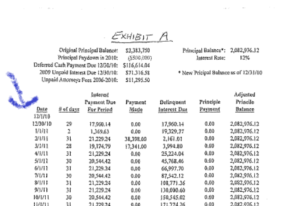 Microlaser Therapy Corp. v. White involved a defense summary judgment on limitations, in response to a suit on a guaranty, based upon a payment schedule (right). The Fifth Court found that the first few entries were not only not conclusive evidence of when the claim arose, but no evidence on that point. Accordingly, it reversed and rendered judgment for the plaintiff. No. 05-17-00761-CV (Nov. 16, 2018) (mem. op.)
Microlaser Therapy Corp. v. White involved a defense summary judgment on limitations, in response to a suit on a guaranty, based upon a payment schedule (right). The Fifth Court found that the first few entries were not only not conclusive evidence of when the claim arose, but no evidence on that point. Accordingly, it reversed and rendered judgment for the plaintiff. No. 05-17-00761-CV (Nov. 16, 2018) (mem. op.)
 The plaintiff in Hernandez v. Sun Crane & Hoist noted that the defendant’s Health and Safety Manual identified it as a “controlling employer” for OSHA purposes. That manual has to be read along with the relevant contract, however, which “repeatedly made clear that Capform was responsible for providing all equipment for performing the work; Capform was ‘solely responsible for the acts and omissions of its employees, agents and suppliers and for the acts and omissions of its sub-subcontractors and their employees, agents and suppliers’; and Capform accepted sole responsibility for providing a safe place to work for its employees and for the employees of its sub-subcontractors and suppliers, and for the adequacy and required use of all safety equipment,” leading to affirmance of summary judgment for the defendant. No. 05-17-00719-CV (Nov. 2, 2018) (mem. op.)
The plaintiff in Hernandez v. Sun Crane & Hoist noted that the defendant’s Health and Safety Manual identified it as a “controlling employer” for OSHA purposes. That manual has to be read along with the relevant contract, however, which “repeatedly made clear that Capform was responsible for providing all equipment for performing the work; Capform was ‘solely responsible for the acts and omissions of its employees, agents and suppliers and for the acts and omissions of its sub-subcontractors and their employees, agents and suppliers’; and Capform accepted sole responsibility for providing a safe place to work for its employees and for the employees of its sub-subcontractors and suppliers, and for the adequacy and required use of all safety equipment,” leading to affirmance of summary judgment for the defendant. No. 05-17-00719-CV (Nov. 2, 2018) (mem. op.)
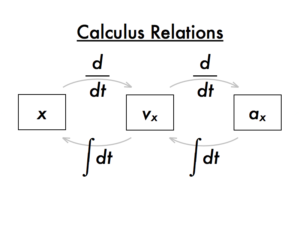 A common claim in mortgage-foreclosure litigation is that, during negotiations between the servicer/lender and the borrower, the lender abandons the acceleration of the underlying loan obligation. The issue is often litigated because of its effect on limitations – abandonment means that the foreclosure process can begin anew; otherwise, the limitations clock runs from the initial acceleration. The 2008 financial crisis produced a lengthy series of Fifth Circuit cases on the issue, as well as a large body of state case law, the substantial majority of which found abandonment and thus no limitations bar to foreclosure. Pitts v. Bank of New York is to the contrary, observing:
A common claim in mortgage-foreclosure litigation is that, during negotiations between the servicer/lender and the borrower, the lender abandons the acceleration of the underlying loan obligation. The issue is often litigated because of its effect on limitations – abandonment means that the foreclosure process can begin anew; otherwise, the limitations clock runs from the initial acceleration. The 2008 financial crisis produced a lengthy series of Fifth Circuit cases on the issue, as well as a large body of state case law, the substantial majority of which found abandonment and thus no limitations bar to foreclosure. Pitts v. Bank of New York is to the contrary, observing:
“But the statements and notices contained no language similar to that in [Boren v. U.S. Nat’l Bank, 807 F.3d 99 (5th Cir. 2015)], and the cases following Boren stating that if Castle Mortgage did not pay the amount demanded, then the loan would be accelerated. Language stating that the loan would be accelerated is inconsistent with an earlier notice of acceleration and clearly establishes the noteholder’s abandonment of the earlier acceleration because, if the noteholder intended to rely on the earlier notice of acceleration, it would not state that acceleration could occur in the future. Without that language, the monthly statements and delinquency notices in this case lack one of the two bases for the Fifth Circuit’s conclusion in Boren that the notices to the borrower conclusively established the noteholder’s abandonment of an earlier acceleration.”
No. 05-17-00859-CV (Oct. 12, 2018).
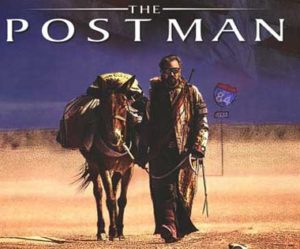 It is a black-letter principle that “strict compliance with the provisions of an option contract is required,” and accordingly, that ” acceptance of an option must be unqualified, unambiguous, and strictly in accordance with the terms of the contract.” In Levu v. Pacifco Partners LTD: “The Lease required all notices to be: (i) mailed by first class, United States Mail, postage prepaid, certified, with return receipt requested, (ii) hand delivered by courier to the intended address and signed for by recipient, or (iii) sent by email followed by a confirmatory letter as more particularly described in (i) or (ii) above. The Lease additionally required all notices to be emailed with a request to the recipient to return a read receipt. The evidence of record supports the trial court’s unchallenged finding of fact number nine that Levu’s October 15, 2014 letter was sent only by United States certified mail, return receipt requested. Because the October 15, 2014 letter was not emailed to Pacifico as required by the Lease, the letter did not strictly comply with the Lease’s notice provisions for exercising an option to purchase the property, and was ineffectual.” No. 05-16-01167-CV (Aug. 23, 2018) (mem. op.)
It is a black-letter principle that “strict compliance with the provisions of an option contract is required,” and accordingly, that ” acceptance of an option must be unqualified, unambiguous, and strictly in accordance with the terms of the contract.” In Levu v. Pacifco Partners LTD: “The Lease required all notices to be: (i) mailed by first class, United States Mail, postage prepaid, certified, with return receipt requested, (ii) hand delivered by courier to the intended address and signed for by recipient, or (iii) sent by email followed by a confirmatory letter as more particularly described in (i) or (ii) above. The Lease additionally required all notices to be emailed with a request to the recipient to return a read receipt. The evidence of record supports the trial court’s unchallenged finding of fact number nine that Levu’s October 15, 2014 letter was sent only by United States certified mail, return receipt requested. Because the October 15, 2014 letter was not emailed to Pacifico as required by the Lease, the letter did not strictly comply with the Lease’s notice provisions for exercising an option to purchase the property, and was ineffectual.” No. 05-16-01167-CV (Aug. 23, 2018) (mem. op.)
 Skyline Commercial v. ISC Acquisition addressed several aspects of the interplay between an express contract and the doctrine of quantum meruit, including:
Skyline Commercial v. ISC Acquisition addressed several aspects of the interplay between an express contract and the doctrine of quantum meruit, including:
- A statement about the scope of a contract, made in response to a motion to transfer venue, did not conclusive resolve the viability of the quantum meruit claim because a party may not judicially admit a question of law;
- The trial court correctly used the applicable Pattern Jury Charge about quantum meruit (reminding, “a trial court should not embellish well-settled pattern jury charges with addendum”); and
- The jury properly weighed conflicting testimony about whether the defendant knew of the relevant orders – and the plaintiff’s expectation of payment for them.
No. 05-17-00028-CV (June 22, 2018) (mem. op.)
 The trial court found an oral contract to sell Xena, an “elite-pedigreed female Labrador retriever,” finding that the plaintiff established the partial-performance exception to the statute of frauds. .” The appellant challenged that conclusion, arguing that “his own partial performance is not ‘unequivocally referable’ to the contract to sell Xena . . . his leaving Xena with the [other side] in July 2013 is equally consistent with his prior conduct of leaving a dog with [them] for training.” The Fifth Court disagreed, observing: “[I]t is not [Appellant’s] partial performance that is at issue; instead, it is [Appellees’] performance, which was established by their testimony and their documentary evidence . . . Partial performance takes a contract out of the statute of frauds when the party seeking enforcement of the contract partially performed.” McCain v. Promise House, No. 05-16-00598-CV (May 7, 2018) (mem. op.)
The trial court found an oral contract to sell Xena, an “elite-pedigreed female Labrador retriever,” finding that the plaintiff established the partial-performance exception to the statute of frauds. .” The appellant challenged that conclusion, arguing that “his own partial performance is not ‘unequivocally referable’ to the contract to sell Xena . . . his leaving Xena with the [other side] in July 2013 is equally consistent with his prior conduct of leaving a dog with [them] for training.” The Fifth Court disagreed, observing: “[I]t is not [Appellant’s] partial performance that is at issue; instead, it is [Appellees’] performance, which was established by their testimony and their documentary evidence . . . Partial performance takes a contract out of the statute of frauds when the party seeking enforcement of the contract partially performed.” McCain v. Promise House, No. 05-16-00598-CV (May 7, 2018) (mem. op.)
 At trial, Claymore Holdings won its fraud claim against Credit Suisse, establishing the loss of a $250 million investment as a result of a flawed appraisal. The Fifth Court affirmed, focusing on two bedrock principles of modern businesss litigation.
At trial, Claymore Holdings won its fraud claim against Credit Suisse, establishing the loss of a $250 million investment as a result of a flawed appraisal. The Fifth Court affirmed, focusing on two bedrock principles of modern businesss litigation.
- “Specific provisions concerning an issue are controlling over general provisions.” Legally and factually, Claymore showed that Credit Suisse’s disclaimers of reliance did not foreclose liability for the specific issues about the appraisal raised by Claymore.
- “[T]he trial court was not limited to the jury’s award of damages on Claymore’s fraudulent inducement claim in determining appropriate equitable relief on the claims for which the parties waived their right to jury trial.” On the facts of this case, “[h]aving obtained favorable findings from the jury on the fraud claim and from the trial court on the contract claim, Claymore could elect rescission as its remedy.”
Credit Suisse AG v. Claymore Holdings LLC, No. 05-15-01463-CV (Feb. 20, 2018) (mem. op.)
 Pappas testified about his 50% interest in a car wash business, using an undisputed sale price for the business, undisputed evidence about the face amount of a relevant note, and corrobrating his calculation with a recent property appraisal that was admitted without objection.
Pappas testified about his 50% interest in a car wash business, using an undisputed sale price for the business, undisputed evidence about the face amount of a relevant note, and corrobrating his calculation with a recent property appraisal that was admitted without objection.  This foundation was sufficient to satisfy “the presumption that an owner is familiar with his property and its value,” which requires that “the owner must provide the factual basis on which his opinion rests, although this burden is not particularly onerous in light of the resources available today.” Wash Technologies v. Pappas, No. 05-16-00633-CV (Feb. 6, 2018) (applying Natural Gas Pipeline Co. v. Justiss, 397 S.W.3d 150, 157 (Tex. 2012)).
This foundation was sufficient to satisfy “the presumption that an owner is familiar with his property and its value,” which requires that “the owner must provide the factual basis on which his opinion rests, although this burden is not particularly onerous in light of the resources available today.” Wash Technologies v. Pappas, No. 05-16-00633-CV (Feb. 6, 2018) (applying Natural Gas Pipeline Co. v. Justiss, 397 S.W.3d 150, 157 (Tex. 2012)).
 The economic loss rule, and the related debate about the proper handling of “con-tort” claims, can raise difficult and close questions. Hames v. JP Morgan Chase, however, presents a relatively clean example. Hames alleged mishandling of her bank account, and argued that her negligence claim could proceed independently of her breach-of-contract claim, as the bank’s duties arose from Article 4 of the UCC.The Court disagreed, finding that “[t]he duties that Chase allegedly breached were dependent on its contact with Hames,” and noting authority that “[t]he relationship of a bank to a general depositor is conrractual, that of debtor-creditor arising from the depository contract.” Additionallly, “the account funds that Hames seeks to recover relate to the subject matter of the contract . . . ” No. 05-16-00472-CV (Jan. 22, 2018) (mem. op.)
The economic loss rule, and the related debate about the proper handling of “con-tort” claims, can raise difficult and close questions. Hames v. JP Morgan Chase, however, presents a relatively clean example. Hames alleged mishandling of her bank account, and argued that her negligence claim could proceed independently of her breach-of-contract claim, as the bank’s duties arose from Article 4 of the UCC.The Court disagreed, finding that “[t]he duties that Chase allegedly breached were dependent on its contact with Hames,” and noting authority that “[t]he relationship of a bank to a general depositor is conrractual, that of debtor-creditor arising from the depository contract.” Additionallly, “the account funds that Hames seeks to recover relate to the subject matter of the contract . . . ” No. 05-16-00472-CV (Jan. 22, 2018) (mem. op.)
 Chase Bank sued a borrower; the threshold question was whether the longer limitations period for a negotiable instrument applied. While Chase sued on a note, the instrument did not qualify as a negotiable instrument because ” the sum-certain requirement is not met unless one can determine from the face of the note the extent of the maker’s liability.” Here, the Note (1) referred to a promise to pay “the total principal amount of $169,573.72 or so much as may be outstanding,” (2) “permit to pay ‘all or any part of the loan evidenced by this Note at any time,'” (3) said that “if prepayments are made, the Bank may apply them “in such order and manner as [the Bank] may from time to time determine in its sole discretion,'” and (4) referred to the “books and records of the Bank” to specify the precise amount owerd. Accordingly: “[b]ecause the Note fails to identify a sum certain on its face, we conclude it is not a negotiable instrument.” JP Morgan Chase v. Robinson & Hoskins, No. 05-17-00087-CV (Oct. 9, 2017) (mem. op.)
Chase Bank sued a borrower; the threshold question was whether the longer limitations period for a negotiable instrument applied. While Chase sued on a note, the instrument did not qualify as a negotiable instrument because ” the sum-certain requirement is not met unless one can determine from the face of the note the extent of the maker’s liability.” Here, the Note (1) referred to a promise to pay “the total principal amount of $169,573.72 or so much as may be outstanding,” (2) “permit to pay ‘all or any part of the loan evidenced by this Note at any time,'” (3) said that “if prepayments are made, the Bank may apply them “in such order and manner as [the Bank] may from time to time determine in its sole discretion,'” and (4) referred to the “books and records of the Bank” to specify the precise amount owerd. Accordingly: “[b]ecause the Note fails to identify a sum certain on its face, we conclude it is not a negotiable instrument.” JP Morgan Chase v. Robinson & Hoskins, No. 05-17-00087-CV (Oct. 9, 2017) (mem. op.)
 Today’s Dallas Observer has an excellent story about the City of Dallas’s $4 billion back pay dispute with police and firefighters, part of which is set for trial in December 2017 in Collin County. The case involves issues addressed by the Fifth Court in 2002 (yes, 2002) in Arredondo v. City of Dallas, 79 S.W.3d 65 (Tex. App.–Dallas 2002, pet. denied). Specifically, the Court found the word “maintained” to be patently ambiguous as used in this part of a 1978 ordinance: “The current percentage pay differential between grades in the sworn ranks of the Dallas Police Force and the Fire Fighter and Rescue Force shall be maintained.”
Today’s Dallas Observer has an excellent story about the City of Dallas’s $4 billion back pay dispute with police and firefighters, part of which is set for trial in December 2017 in Collin County. The case involves issues addressed by the Fifth Court in 2002 (yes, 2002) in Arredondo v. City of Dallas, 79 S.W.3d 65 (Tex. App.–Dallas 2002, pet. denied). Specifically, the Court found the word “maintained” to be patently ambiguous as used in this part of a 1978 ordinance: “The current percentage pay differential between grades in the sworn ranks of the Dallas Police Force and the Fire Fighter and Rescue Force shall be maintained.”
 “Examining the parties’ conduct and course of dealing, the fact finder could have inferred the element of mutual assent [between Miller and DML] from the circumstances.
“Examining the parties’ conduct and course of dealing, the fact finder could have inferred the element of mutual assent [between Miller and DML] from the circumstances.
- Miller asked DML to remove the fountain,
- DML subcontracted with a third party to do so . . .
- The invoice submitted by the subcontractor to DML is part of the record and [DML’s witness] testified that DML’s practice is to submit such invoices to their customers
- DML continued providing landscaping services after the fountain was removed.
- Miller admitted he paid DML for some of the landscaping work. . . .
- DML sent Miller a demand letter stating he was “in default of your obligation to pay the sum of $7,870.00 . . . and you have failed to pay despite repeated requests for payment by our office.” The record does not show Miller protested the demand letter or attempted to reconcile the account. . . .
- Miller tacitly acknowledged he knew there would be compensation for the removal of the fountain and landscaping services when he testified he told Wetzel ‘the money would be held back until either I got the fountain back or he worked off the value of the fountain.’ . . .
- [DML’s witness] testified the first time he heard about the alleged agreement for DML to work off the cost of the fountain was at trial, indicating this was not the parties’ agreement.” (punctuation added)
In sum, good recordkeeping (including recollection of a favorable admission) saved the day for DML. Miller v. Design Masterpiece Landscape, Inc., No. 05-16-00747-CV (July 28, 2017).
 Verveba Communications and a former employee, Jewell Thomas, settled a dispute about travel expenses after a JP court trial with this release: “each party hereby: (1) releases all claims against the other; (ii) waives his/its right to file a motion for new trial, [and] (iii) waives his/its right to appeal the [JP court] judgment . . . .” Jewell then brought new claims, beyond the contract claim litigated in JP court, and the Fifth Court affirmed their dismissal: “None of these cases [cited by Thomas] held that the release must identify each claim or cause of action by name to be effective and, in fact, none of the releases in these cases identified the claims being released specifically by name.” Thomas v. Verveba Telecom, LLC, No. 05-16-00123-CV (March 31, 2017) (mem. op.)
Verveba Communications and a former employee, Jewell Thomas, settled a dispute about travel expenses after a JP court trial with this release: “each party hereby: (1) releases all claims against the other; (ii) waives his/its right to file a motion for new trial, [and] (iii) waives his/its right to appeal the [JP court] judgment . . . .” Jewell then brought new claims, beyond the contract claim litigated in JP court, and the Fifth Court affirmed their dismissal: “None of these cases [cited by Thomas] held that the release must identify each claim or cause of action by name to be effective and, in fact, none of the releases in these cases identified the claims being released specifically by name.” Thomas v. Verveba Telecom, LLC, No. 05-16-00123-CV (March 31, 2017) (mem. op.)
“I-35 argues that, although the guaranty itself does not specify an interest rate, the guaranty incorporates the Note and the two must be read together. We agree.” Interstate 35-Chisam Road LP v. Moyaedi, No. 05-16-00196-CV (March 20, 2017) (mem. op.)
 The dispute that rolled into court in Wheel Technologies v. Gonzalez was whether a shipment of wheels had been delivered. The companies’ records were important but not dispositive, as the Fifth Court rounded up the facts: “This case essentially came down to a ‘he said, he said’ between two parties’ explanations of accounting. Blaser testified WTI always created a purchase order when it received a delivery and because WTI had no record of any outstanding purchase orders owed to Gonzalez, then it never received the tires. Gonzalez testified to the contrary. . . . Further, Blaser admitted he could not say for sure Owens always created a purchase order upon receipt of tires because Blaser was never personally involved in any of the transactions. Rather, Gonzalez testified there were many times in which the deliveries occurred after hours so checks and other documentation were not always ready when he made a delivery.” No. 05-16-00068-CV (Feb. 8, 2017) (mem. op.)
The dispute that rolled into court in Wheel Technologies v. Gonzalez was whether a shipment of wheels had been delivered. The companies’ records were important but not dispositive, as the Fifth Court rounded up the facts: “This case essentially came down to a ‘he said, he said’ between two parties’ explanations of accounting. Blaser testified WTI always created a purchase order when it received a delivery and because WTI had no record of any outstanding purchase orders owed to Gonzalez, then it never received the tires. Gonzalez testified to the contrary. . . . Further, Blaser admitted he could not say for sure Owens always created a purchase order upon receipt of tires because Blaser was never personally involved in any of the transactions. Rather, Gonzalez testified there were many times in which the deliveries occurred after hours so checks and other documentation were not always ready when he made a delivery.” No. 05-16-00068-CV (Feb. 8, 2017) (mem. op.)
The trial court granted summary judgment for the employer (oddly enough, a labor union) in a dispute arising from an employee’s benefits. The Fifth Court reversed, finding ambiguity in the underlying disability policy (noting, in particular, its interplay with separately-drafted legal instruments about the employment relationship – a recurring issue in disputes about arbitration clauses), and also finding related fact issues about whether the contract was unilateral or bilateral, and whether the employee had exhausted administrative remedies. The opinion recaps the major authorities about the role of contractual ambiguity in a summary judgment analysis. Videtich v. Transport Workers Union of Am., No. 05-15-01449-CV (Dec. 29, 2016) (mem. op.)
 Nations Renovations successfullly sued Hong in quantum meruit for unpaid construction work, and successfully defended against misrepresentation claims. The Fifth Court affirmed based on contract terms. As to the quantum meruit claim, it noted: “Because the four items [at issue] are listed only as recommendations and the other items of Extra Work claimed by Nations are not mentioned in the Contract, we conclude the Extra Work is not covered by the Contract. Therefore, the trial court properly submitted the quantum meruit question to the jury.” As to the misrepresentation claims, applying Italian Cowboy, the Court found this disclaimer of reliance to be effective: “17. ANY REPRESENTATIONS, STATEMENTS, OR OTHER COMMUNICATIONS NOT WRITTEN ON THIS CONTRACT ARE AGREED TO BE IMMATERIAL and not relied on by either party and do not survive the execution of this contract.” Hong v. Nations Renovations LLC, No. 05-15-01036-CV (Dec. 29, 2016) (mem. op.)
Nations Renovations successfullly sued Hong in quantum meruit for unpaid construction work, and successfully defended against misrepresentation claims. The Fifth Court affirmed based on contract terms. As to the quantum meruit claim, it noted: “Because the four items [at issue] are listed only as recommendations and the other items of Extra Work claimed by Nations are not mentioned in the Contract, we conclude the Extra Work is not covered by the Contract. Therefore, the trial court properly submitted the quantum meruit question to the jury.” As to the misrepresentation claims, applying Italian Cowboy, the Court found this disclaimer of reliance to be effective: “17. ANY REPRESENTATIONS, STATEMENTS, OR OTHER COMMUNICATIONS NOT WRITTEN ON THIS CONTRACT ARE AGREED TO BE IMMATERIAL and not relied on by either party and do not survive the execution of this contract.” Hong v. Nations Renovations LLC, No. 05-15-01036-CV (Dec. 29, 2016) (mem. op.)
 While affirming a relatively straightforward judgment in a home loan dispute, the Fifth Court observed: “The unjust enrichment doctrine applies principles of restitution to disputes where there is no actual contract and is based on the equitable principle that one who receives benefits which would be unjust for him to retain ought to make restitution.” Ihde v. First Horizon Home Loans, No. 05-15-01084-CV (Nov. 28, 2016) (mem. op.) (emphasis added) A counterpoint in this practical but rarely-visited area of remedies law appears in City of Harker Heights v. Sun Meadows Land Ltd., 830 S.W.2d 313, 317 (Tex. App.–Austin 1992, no writ), which observes: “An action for money had and received may be founded upon an express agreement or one implied in fact, but it is not dependent upon either.” (emphasis added).
While affirming a relatively straightforward judgment in a home loan dispute, the Fifth Court observed: “The unjust enrichment doctrine applies principles of restitution to disputes where there is no actual contract and is based on the equitable principle that one who receives benefits which would be unjust for him to retain ought to make restitution.” Ihde v. First Horizon Home Loans, No. 05-15-01084-CV (Nov. 28, 2016) (mem. op.) (emphasis added) A counterpoint in this practical but rarely-visited area of remedies law appears in City of Harker Heights v. Sun Meadows Land Ltd., 830 S.W.2d 313, 317 (Tex. App.–Austin 1992, no writ), which observes: “An action for money had and received may be founded upon an express agreement or one implied in fact, but it is not dependent upon either.” (emphasis added).
 If ever a case illustrated a trap for the unwary, it is IDA Engineering v. PBK Architects, in which the plaintiff sued exactly four years after the termination of its contractual relationship. Unfortunately, the invoices upon which its damage claim relied were issued before the contract termination, and the contracts contained this language about payment: “Invoices will be issued monthly, per
If ever a case illustrated a trap for the unwary, it is IDA Engineering v. PBK Architects, in which the plaintiff sued exactly four years after the termination of its contractual relationship. Unfortunately, the invoices upon which its damage claim relied were issued before the contract termination, and the contracts contained this language about payment: “Invoices will be issued monthly, per  percentage of completion or per phase and will be due upon issuance date.” (emphasis added). Accordingly, the claim was barred by limitations. No. 05-15-01418-CV (Oct. 4, 2016) (mem. op.)
percentage of completion or per phase and will be due upon issuance date.” (emphasis added). Accordingly, the claim was barred by limitations. No. 05-15-01418-CV (Oct. 4, 2016) (mem. op.)
Intent determined: Defined term means the list with that same title attached as Exhibit A
July 12, 2016I n Kartsotis v. Bloch (July 7, 2016), the Dallas Court of Appeals reversed summary judgment and rendered judgment for the appellee where the issue was the proper interpretation of a Contribution and Indemnity Agreement allocating the duty to reimburse the other parties for payments made on several obligations of co-owned businesses. A core dispute is whether the defined term “Existing Obligations” in the parties’ agreement meant the primary debtors’ financial obligations listed as “Existing Obligations” on Exhibit A to the agreement, as Kartsotis contended, or whether “Existing Obligations” meant the parties’ secondary liabilities, such as guaranties and indemnities, related to the Exhibit A obligations, as Bloch asserted.
n Kartsotis v. Bloch (July 7, 2016), the Dallas Court of Appeals reversed summary judgment and rendered judgment for the appellee where the issue was the proper interpretation of a Contribution and Indemnity Agreement allocating the duty to reimburse the other parties for payments made on several obligations of co-owned businesses. A core dispute is whether the defined term “Existing Obligations” in the parties’ agreement meant the primary debtors’ financial obligations listed as “Existing Obligations” on Exhibit A to the agreement, as Kartsotis contended, or whether “Existing Obligations” meant the parties’ secondary liabilities, such as guaranties and indemnities, related to the Exhibit A obligations, as Bloch asserted.
Bloch argued that a statement in the agreement’s recitals supported his broader interpretation of Existing Obligations because it evidenced an intent to “effect an equitable sharing of their risk and liability in respect of the Obligations.” The trial court agreed and granted Bloch summary judgment on cross-motions seeking to construe the agreement.
The Court of Appeals reversed. It rejected Bloch’s argument because recitals are not strictly part of the contract and do not control the operative phrases of the contract unless they are ambiguous, the intent of the recital was vague and provided no guidance, and the recital was not as specific as the operative definitions. Exhibit A thus resolved the question of what the parties objectively intended when they agreed to that defined term, they meant only the obligations listed.
- “A statement that makes up the parties’ contact is an op
 erative fact, a necessary part of a cause of action, and is not hearsay.”
erative fact, a necessary part of a cause of action, and is not hearsay.” - “A document created by one business may become a record of a second business if the second business determines the accuracy of the information generated by the first business.”
- A document is not hearsay when “it represents the legally operative fact of demand, a necessary part of [a] breach of contract case.”
Humphrey v. Yancey, No. 05-15-00653-CV (June 30, 2016) (mem. op.)
 . . . a seemingly academic question, but one of great significance to the guarantor whose liability rested on whether a transfer occurred. Acknowledging the Texas Supreme Court’s broad definition of a “transfer” as “Any mode of disposing of or parting with an asset or an interest in an asset, including a gift, the payment of money, release, lease, or creation of a lien or other encumbrance. . . . every method—direct or indirect, absolute or conditional, voluntary or involuntary—of disposing of or parting with property or an interest in property,” the Fifth Court held that standard release language in a settlement agreement did not create a transfer, even though the overrarching goal of the settlement was to bring an end to one development project, so a new one could proceed. Argent Development LP v. Las Colinas Group LP, No. 05-15-00626-CV (June 20, 2016) (mem. op.)
. . . a seemingly academic question, but one of great significance to the guarantor whose liability rested on whether a transfer occurred. Acknowledging the Texas Supreme Court’s broad definition of a “transfer” as “Any mode of disposing of or parting with an asset or an interest in an asset, including a gift, the payment of money, release, lease, or creation of a lien or other encumbrance. . . . every method—direct or indirect, absolute or conditional, voluntary or involuntary—of disposing of or parting with property or an interest in property,” the Fifth Court held that standard release language in a settlement agreement did not create a transfer, even though the overrarching goal of the settlement was to bring an end to one development project, so a new one could proceed. Argent Development LP v. Las Colinas Group LP, No. 05-15-00626-CV (June 20, 2016) (mem. op.)
Difference between Plaintiff’s breach of contract element and agency affirmative defense? It’s all in your head.
March 29, 2016In Tour de Force, Ltd. v. Barr, the plaintiff, Tour de Force, was a Russian tour operator that entered into an agreement by email with Gordon Barr, CEO of Port Promotions. There wasn’t a separate written contract. When Tour de Force stopped receiving payments, it sued Barr individually. The trial court found after a bench trial that Tour de Force did not prove that a contract existed with Barr in his individual capacity. Tour de Force appealed, arguing that the trial court applied the wrong standard because agency is an affirmative defense. The Dallas Court of Appeals affirmed.
On the issue of whether it was the defendant’s burden to prove agency or the plaintiff’s burden to prove a contract with the defendant in his individual capacity, the Court noted that the defendant disclaimed any reliance on an agency defense during closing, meaning he had no burden to establish an affirmative defense. “Rather, the burden remained squarely with [Tour de Force] to prove a ‘meeting of the minds’ between it and Barr to enter into a contract.” The emails forming the contract included a signature line of Gordon Barr as CEO of Port Promotions, invoices were directed at Port Promotions, and payments were made from an account owned by Port Promotions. Thus, though the plaintiff testified that he believed he had contracted with Barr, there was no evidence of a “meeting of the minds” between Tour de Force and Barr in his individual capacity to enter into a contract.
 Schultz, owner of a chain of movie theaters, did not want to pay Banowsky, a licensed Texas attorney, for helping Schultz find a theater location. Schultz won summary judgment based on the Texas Real Estate Licensing Act, primarily because Banowsky admitted that his work did not involve legal services. The Fifth Court reversed: “[Schultz] argues that Banowsky’s construction of the Act is both unreasonable and favors the individual interest of an attorney over the interest in protecting the public from unlicensed, unscrupulous, or unqualified persons. But the fact remains that the plain language of the statute exempts attorneys from all requirements of the Act.” Banowsky v. Schultz, No. 05-14-01624-CV (Feb. 10, 2016) (mem. op.)
Schultz, owner of a chain of movie theaters, did not want to pay Banowsky, a licensed Texas attorney, for helping Schultz find a theater location. Schultz won summary judgment based on the Texas Real Estate Licensing Act, primarily because Banowsky admitted that his work did not involve legal services. The Fifth Court reversed: “[Schultz] argues that Banowsky’s construction of the Act is both unreasonable and favors the individual interest of an attorney over the interest in protecting the public from unlicensed, unscrupulous, or unqualified persons. But the fact remains that the plain language of the statute exempts attorneys from all requirements of the Act.” Banowsky v. Schultz, No. 05-14-01624-CV (Feb. 10, 2016) (mem. op.)
 While the Wilburns submitted the highest price at a real estate auction, it was below the reserve price set by the bank who was auctioning the property. They nevertheless sought to enforce a right to the property. The Dallas Court affirmed a take-nothing verdict for the defendants. As to the auctioneer’s actual authority, the Court noted the instructions about reserve price in the “Agreement to Conduct Auction Sale.” As to his apparent authority, the Court noted the auctioneer’s statements at the start of the auction and the Wilburns’ signatures on two cards that said what a reserve price was and referenced the auctioneer’s contract: “None of the bank’s actions or inactions clothed the auctioneer with the indicia of authority to sell the Property at a price below the reserve without Valliance’s consent.” Wilburn v. Valliance Bank, No. 05-14-00965-CV (Dec. 21, 2015) (mem. op.)
While the Wilburns submitted the highest price at a real estate auction, it was below the reserve price set by the bank who was auctioning the property. They nevertheless sought to enforce a right to the property. The Dallas Court affirmed a take-nothing verdict for the defendants. As to the auctioneer’s actual authority, the Court noted the instructions about reserve price in the “Agreement to Conduct Auction Sale.” As to his apparent authority, the Court noted the auctioneer’s statements at the start of the auction and the Wilburns’ signatures on two cards that said what a reserve price was and referenced the auctioneer’s contract: “None of the bank’s actions or inactions clothed the auctioneer with the indicia of authority to sell the Property at a price below the reserve without Valliance’s consent.” Wilburn v. Valliance Bank, No. 05-14-00965-CV (Dec. 21, 2015) (mem. op.)
 Highland Capital won a judgment for over $20 million based on the alleged breach of a contract by RBC Capital to sell a package of notes. RBC Capital Markets, LLC v. Highland Capital Management, LP, No. 05-13-00948-CV (Dec. 4, 2015) (mem. op.) The Dallas Court of Appeals reversed, finding no enforceable contract. The Court first reviewed the protean doctrines of judicial admissions and judicial estoppel, ultimately concluding that statements made by RBC in other litigation were not preclusive in this case, noting that RBC did not ultimately prevail in the other matter. It then rejected Highland’s argument that a contract was formed when the parties agreed upon “price and principal,” noting that RBC’s acceptance was expressly subject to further documentation (specifically, a written trade confirmation and purchase agreement). The Court noted that, as alleged by Highland, the claimed breach involved matters that remained to be resolved in those subsequent documents. (Another “conditional agreement” case is discussed today on sister blog 600Camp.)
Highland Capital won a judgment for over $20 million based on the alleged breach of a contract by RBC Capital to sell a package of notes. RBC Capital Markets, LLC v. Highland Capital Management, LP, No. 05-13-00948-CV (Dec. 4, 2015) (mem. op.) The Dallas Court of Appeals reversed, finding no enforceable contract. The Court first reviewed the protean doctrines of judicial admissions and judicial estoppel, ultimately concluding that statements made by RBC in other litigation were not preclusive in this case, noting that RBC did not ultimately prevail in the other matter. It then rejected Highland’s argument that a contract was formed when the parties agreed upon “price and principal,” noting that RBC’s acceptance was expressly subject to further documentation (specifically, a written trade confirmation and purchase agreement). The Court noted that, as alleged by Highland, the claimed breach involved matters that remained to be resolved in those subsequent documents. (Another “conditional agreement” case is discussed today on sister blog 600Camp.)
 Does a limitation of liability provision include gross negligence claims? This basic question of contract drafting finds surprisingly little answer in Texas authority. A recent article by LTPC attorneys David Coale and Mallory Biblo summarizes the opinions and where the Dallas Court of Appeals falls.
Does a limitation of liability provision include gross negligence claims? This basic question of contract drafting finds surprisingly little answer in Texas authority. A recent article by LTPC attorneys David Coale and Mallory Biblo summarizes the opinions and where the Dallas Court of Appeals falls.
If You Might Be Violating Public Policy, Make Sure to Include an Arbitration Clause
October 12, 2015Jenner & Block took on the representation of Parallel Networks in patent infringement litigation. Their contingency fee agreement provided that Parallel was responsible for the payment of expenses, but Parallel ran up a $500,000 deficit before expenses were finally paid out of proceeds from settlement in another lawsuit. Jenner withdrew from the case, citing a termination clause that allowed it to withdraw if continuing was not in its economic interest. After the patent cases settled under successor counsel, Jenner invoked arbitration and sought to recover $10 million in fees. The arbitrator ruled that Jenner’s withdrawal was justified and awarded $3 million as an “appropriate and fair” portion of the contingent fee recovery, as provided in the parties’ contract. The trial court confirmed the award, and the Dallas Court of Appeals affirmed. The Court declined Parallel’s invitation to declare that the fee agreement was against public policy, holding that the statutory grounds for vacating an award under the FAA are exclusive, and that public policy therefore could not serve to vacate the award.
Parallel Networks, LLC v. Jenner & Block LLP, No. 05-13-00748-CV
Evidence Held to Be Insufficient on Interlocutory Appeal Is Still Insufficient on Summary Judgment
August 28, 2015In early 2012, the Dallas Court of Appeals reversed a temporary injunction that would have prevented BB&T from foreclosing on a pair of properties secured by a $10 million promissory note. Two and a half years later, matters have not improved for the borrowers, as the Court has now affirmed summary judgment for the bank.
In responding to the no-evidence summary judgment motion, the borrowers had “relied entirely on evidence presented at the temporary judgment hearing” to show that they had a valid contract with BB&T that superseded the bank’s right to foreclose. Because the Court had previously held that this evidence amounted to nothing more than an unenforceable “agreement to agree,” the law of the case doctrine prevented the outcome from being any different in this subsequent appeal. The same evidence was also held to be insufficient to support the borrowers’ claims for fraud and declaratory judgment, while a money had and received claim failed because the borrowers had made a $1.8 million payment with full knowledge of the facts and without fraud or duress. Finally, the trial court had not abused its discretion by striking the borrowers’ fifth amended petition because it had been filed outside the deadline in the court’s scheduling order, was not filed with leave of court, and was prejudicial to the bank because it sought to add a claim that “would effectively inject new substantive matters into the litigation by reinjecting old ones.”
TCI Luna Ventures, LLC v. Branch Banking & Tr. Co., No. 05-13-01221-CV
After a bidding process, TXU entered into a contract with Fort Bend I.S.D. in 2010 to supply electricity for one year. The following year, the parties extended the contract period to 2014. But in 2012, the school district decided not to continue purchasing electricity because the extension has not been competitively procured as required by the Texas Education Code. TXU sued, but the trial court granted the school district’s plea to the jurisdiction based on governmental immunity. The Court of Appeals affirmed. Because the extension had not gone through a competitive bidding process, it was not “authorized by statute,” and therefore there was not waiver of governmental immunity under the Local Government Contract Claims Act.
TXU Energy Retail Co. L.L.C. v. Fort Bend Indep. Sch. Dist., No. 05-14-01515-CV
The appeal of an oil and gas dispute has led to a multi-million dollar swing in favor of the appellants. The district court had granted a $14 million summary judgment in favor of the seller of oil and gas interests located in New Mexico. The fact scenario is somewhat complex, but the essence seems to be that Three Rivers Operating Co. offered to sell its interests in five properties to MRC Permian Co. pursuant to a preferential purchase right provision in their joint operating agreement. MRC accepted that proposal, for a purchase price of just under $7 million, and further wrote that it was exercising a preferential right to purchase “one hundred percent (100%) of Three Rivers’ interest in the land comprising the Contract Area . . . .” Three Rivers responded to say that there were actually 10 properties for sale for approximately $14 million. MRC then wrote back that it was ready to move forward on Three Rivers’ original offer, but Three Rivers nevertheless concluded that MRC had agreed to buy all ten properties. On cross-motions for summary judgment, the district court entered judgment for Three Rivers, requiring MRC to specifically perform the $14 million deal. The Court of Appeals reversed and rendered judgment for MRC that there was only a $7 million contract for the original five properties.
Three Rivers argued that the initial $7 million offer had been made under a mistaken interpretation of the preferential purchase right clause, and that MRC did not accept that offer in any event because its acceptance letter was actually a counteroffer to buy all of Three Rivers’ interests covered by the JOA. The Court of Appeals disagreed, holding that MRC did not condition its acceptance of the $7 million offer on Three Rivers’ assent to sell any additional properties. So long as it is clear that the acceptance is positive and unequivocal, a contract is formed regardless of whether the offeree makes additional requests at the same time. And when Three Rivers offered to sell all 10 of its properties, that was not an acceptance of an offer by MRC to purchase “100%” of Three Rivers’ interests. MRC had not stated the essential terms of a contract, including purchase price, nor did MRC’s letter indicate any acceptance of a prior offer by MRC. Instead, Three Rivers’ $14 million offer letter was an independent offer of its own, and MRC did not accept it in the manner specified by Three Rivers. The Court of Appeals therefore reversed the trial court’s judgment, rendered judgment for MRC on the $7 million contract, and remanded for consideration of MRC’s costs and attorney fees.
MRC Permian Co. v. Three Rivers Operating Co., No. 05-14-00353-CV
Attorney Robert Cole failed to pay a court reporting service, Gwendolyn Parker, Inc., for the transcripts of two depositions. The Court of Appeals affirmed judgment in favor of the court reporter. Cole argued that Tex. Gov’t Code § 52.059 only allowed individual court reporters to sue for their fees, but the Court rejected that argument. Under that statute, the attorney who takes the deposition and his firm are jointly and severally liable for the court reporter’s charges unless other arrangements are stated on the record. Because nothing in the language of the statute limits the payment obligation to individual court reporters, Cole could not escape from his statutory liability to GPI. The Court also held that Cole could not prevail on the affirmative defense of failure of consideration or a counterclaim for damages because the record did not show that he pleaded either matter in response to the court reporter’s suit.
Cole v. Gwendolyn Parker, Inc., No. 05-13-01655-CV
The Dallas Court of Appeals has reversed a trial court order denying a motion to compel arbitration. The arbitration clause was contained in a contract between a temporary employee and his employment agency, which gave both parties the right to “elect mandatory, binding arbitration for any claim, dispute, or controversy between you, and our clients or us” [sic]. The plaintiff claimed that the arbitration agreement was unenforceable due to substantive unconscionability, lack of consideration, and lack of essential terms. The Court held that nothing in the arbitration agreement demonstrated that the specific manner of arbitration was a material consideration to the parties, noting that the FAA specifically contemplates circumstances in which the parties have not provided for a method of appointment for an arbitrator. The Court also held that the consideration for the overall contract was sufficient to support the arbitration clause as well. Finally, the Court held that the provision was not substantively unconscionable despite its inclusion of a waiver of the right “to take any legal action” because it was not clear that potentially-unconscionable waiver was actually aimed at waiving substantive claims instead of just waiving the right to do so in court instead of arbitration.
Stride Staffing v. Holloway, No. 05-14-00811-CV
Clyde Parks signed a $10,000 promissory note, bearing 15% interest and secured by Super Bowl tickets, in favor of Scott Seybold. Parks defaulted on the note, but did make some sporadic payments before limitations expired. When Seybold demanded payment after the limitations period had expired, Parks responded with emails stating that he was working to get the note paid and that he was not ignoring it. That was enough for both the trial court and the Dallas Court of Appeals to conclude that the claim was not barred by limitations, because the debtor had acknowledged the debt, in writing, as a current obligation. See Tex. Civ. Prac. & Rem. Code § 16.065. The Court of Appeals rejected Parks’ argument that he had not “signed” the emails pursuant to the Texas Uniform Electronic Transactions Act, affirming the trial court’s finding that the “Thank you, Clyde” salutation in each email was intended to be Parks’ signature. Notably, the Court of Appeals pointed out that it was expressing no opinion on whether the automatically-generated name and contact information block at the end of each email could constitute an electronic signature.
Parks v. Seybold, No. 05-13-00694-CV
The Court of Appeals has affirmed a jury verdict and judgment of approximately $705,000 in a contract dispute between a medical products manufacturer and a distributor. The parties’ agreement prohibited the distributor from selling undisclosed competing products and allowed the manufacturer to terminate the agreement for cause if the distributor violated that provision. The manufacturer terminated the agreement, and the distributor filed suit. On appeal, the manufacturer argued that multiple affirmative defenses should have defeated the distributor’s claim as a matter of law, but the Court of Appeals disagreed. There was some evidence in the record that the distributor had disclosed the competing products, and a rather confusing jury question that combined breach with the defenses of prior material breach and waiver led to the manufacturer’s failure to challenge all independent grounds for the jury’s verdict. And with respect to a number of additional issues, the Court of Appeals generally held that the manufacturer had failed to present them to the trial court of preserve their arguments for appeal.
Blackstone Med., Inc. v. Phoenix Surgicals, LLC, No. 05-13-00870-CV
Readers may recall the recent dust-up over a collection of movie posters held by an auction house. In a new case, the disputed collection consists of Broadway theater window cards, which a Texas resident had shipped to an Internet reseller in Vermont. The owner filed suit in Dallas, alleging the reseller had breached the parties’ oral contract by failing to pay him for the cards sold, failing to return the unsold cards to him, and failing to safeguard the cards. The defendants filed a special appearance, which the trial court granted and the Court of Appeals affirmed. Although the primary defendant had made payment to the plaintiff in Texas, an agreement to make payments in the forum state does not weigh heavily in the “calculus of [minimum] contacts.” Although there were multiple conflicts in the parties’ accounts of their dealings, the Court of Appeals deferred to the trial court’s resolution of the factual discrepancies, and the remaining, undisputed facts did not demonstrate purposeful availment of Texas as a forum for the transactions at issue.
Klug v. Wickert, No. 05-14-00080-CV

While we’ve skipped blogging about most of the Dallas Court of Appeals’ forcible detainer cases — long story short, lenders routinely evict residents when the mortgage hasn’t been paid — this one is not exactly routine. The trial court awarded possession of a Burger King restaurant to the landlord, Huge American Real Estate after the tenant remodeled the restaurant without obtaining Huge American’s consent. The Court of Appeals sustained the trial court’s finding that the remodel was a material breach of the lease agreement, holding that Fritz Management’s continued payment of rent did not obviate the contractual requirement of consent to any renovations.
Fritz Mgmt., LLC v. Huge Am. Real Estate, Inc., No. 05-14-00681-CV
For 15 years, Steven Anderson was a route driver for Greenville Automatic Gas Co. Anderson quit and went to work for Automatic Propane Gas & Supply, leading Greenville to invoke an employment agreement that it claimed included both a a covenant not to compete and a nonsolicit provision. Anderson and Automatic Propane sued for a declaratory judgment, alleging (after a series of amendments to the pleadings) that Anderson had only signed a shorter contract that contained neither of the terms claimed by Greenville. The jury found that Anderson has not agreed to the terms claimed by Greenville and awarded him approximately $75,000 in attorney fees. The Dallas Court of Appeals reversed, holding that Anderson and Automatic Gas could not dispute the validity of Greenville’s contract because they had failed to timely file a verified pleading denying its validity, as required by TRCP 93. The Court of Appeals also affirmed summary judgment against Greenville on its tort-based counterclaims and remanded the case for further proceedings.
Greenville Automatic Gas Co. v. Automatic Propane Gas & Supply, LLC, No. 05-13-01405-CV
A settlement agreement between two groups of real estate partners released all of the parties claims in connection with two named lawsuits, but did not include any release for a third lawsuit. The third case proceeded in litigation for another two years before the defendants decided that the plaintiffs’ decision to continue the lawsuit was a breach of the prior settlement agreement. So the defendant filed a fourth lawsuit for declaratory judgment, breach of contract, and related tort claims. On the first day of trial in lawsuit #4, the court ruled that the settlement agreement did not include the third lawsuit, then granted directed verdict on all of the plaintiff’s claims. The Court of Appeals affirmed, holding that the settlement language unambiguously referred to lawsuit #1 and # 2, not to lawsuit #3.
Mikob Props., Inc. v. Joachim, No. 05-13-01613-CV
A 1999 divorce decree required Molly Brizendine to pay a $14,477 debt the she and her ex-husband owed to Texans Credit Union. In 2013, Texans sued Richard Brizendine for the balance of the outstanding line of credit. The county court at law granted judgment for the ex-husband, but the Dallas Court of Appeals reversed and rendered. Although it was Molly who had continued to take advances on the line of credit long after the divorce was final, Richard was still liable for the debt because he had signed the original contract as a co-borrower. The Court held that it was “well-settled that a court in a divorce action has no power to disturb rights that creditors lawfully hold against the parties.”
Texans Credit Union v. Brizendine, No. 05-13-01422-CV
The owners of a company that owned and operated three ASI Gymnastics centers attempted to effectuate a business divorce via a Rule 11 agreement calling for the appointment of a panel of appraisers. A dispute ensued over how the appraisers were to do their work, and that led the parties back to the courthouse to sort out the terms and enforceability of the Rule 11. The trial court ruled that the agreement was valid, and the Court of Appeals affirmed. While the plaintiffs argued that the agreement lacked essential terms as to the interest rate and payment period for the buyout, the Court of Appeals held that the agreement itself (represented in a series of email exchanges between the attorneys) stated that those terms were not the “heart of the proposal,” and the rest of the terms were indeed agreed upon. (Notably, the buyout funds were actually tendered as a lump sum, rendering the interest rate and payment terms moot.) The Court also rejected the plaintiffs’ contention that the Rule 11 was unenforceable because it was not manually signed, ruling that they had not timely objected that the electronic signature blocks on the emails were invalid as signatures for a Rule 11 agreement. However, the Court reversed and rendered an award of attorney fees in favor of the defendants, concluding that the dispute was already before the trial court when the defendants filed a declaratory judgment counterclaim that they had validly complied with the Rule 11 agreement.
Crews v. DKASI Corp., No. 05-14-00544-CV
Just under two years ago, the Court of Appeals reversed summary judgment for Compass Bank because its custodian of records affidavit did not explain how the witness would have personal knowledge to prove up the promissory note. On remand, the trial court granted the bank’s amended motion for summary judgment, and this time that judgment was affirmed. Among other things, the defendants sought to establish a fact issue by pointing to a discrepancy in the amount of damages owed to the bank in the original summary judgment affidavit versus the affidavit in the amended motion. The Court of Appeals disposed of that issue by pointing out that it had already held the original affidavit to be “no evidence,” so the purported conflict was not really a conflict at all. The Court also held that the bank was not required to file the original promissory note, despite a Collin County local rule to that effect, because the local rule conflicted with the Texas Rules of Evidence governing the admissibility of a duplicate. Finally, although the lending instrument contained an illegal homestead warranty provision, the Court held that provision was severable from the remainder of the contract.
Vince Poscente Int’l, Inc. v. Compass Bank, No. 05-14-00165-CV
Ehring Enterprises and RD Management were both distributors of a French manufacturer’s skin-care products. Ehring’s exclusive distribution territory was the eastern U.S., while RD distributed product exclusively in the western U.S. After both distributors’ contracts had expired, RD sued Ehring for breach of contract due to sales it had made in RD’s territory. The trial court accepted RD’s argument that it was a third-party beneficiary of the agreement between Ehring and the French manufacturer. The Court of Appeals affirmed that ruling, noting that the sales RD complained of had begun while Ehring was still contractually obligated to stay out of RD’s sales territory.
Ehring Enters., Inc. v. RD Mgmt. Corp., No. 05-13-00711-CV
The Court of Appeals has reversed a trial court’s judgment awarding approximately $46,000 in attorney fees in a denial of coverage dispute. The case was brought by a homebuyer who sued his builders for a number of defects. The buyer obtained a judgment against the builders in arbitration. The builders had tendered the buyer’s claim to their insurer, Oklahoma Surety Co., but OSC denied coverage for both the defense of the case and ultimate liability. After arbitration, the builders assigned their coverage claim to the buyer, who then sued OSC for the builders’ defense costs and for indemnification under the policy. The trial court ruled that OSC had a duty to the defend the case, but had no duty to indemnify for damages. The Court of Appeals disagreed, holding that an exclusion for property damage to “your work” applied under the “eight corners” rule, thereby barring both coverage and the duty to defend.
Oklahoma Surety Co. v. Novielo, No. 05-13-01546-CV
In this breach of contract claim, the defendant answered the petition with a general denial, but then failed to show up at trial. During the subsequent “prove-up” hearing, the plaintiff offered as its only evidence the contract between the parties. Based on this evidence alone, the trial court entered judgment and awarded the plaintiff $55,000 in damages. On appeal, the Court held that the award of damages was improper because the plaintiff did not offer proof of each element of her claim, including damages.
For the last six years or so, the sublessor of a property in Irving has been seeking compensation for loss of the leasehold after it was sold to the state in lieu of condemnation for a highway project. In 2011, the Court of Appeals affirmed the dismissal of the lessor’s claim against the state on jurisdictional grounds. The lessor then sued the former owner of the property, claiming breach of the lease agreement by accepting the state’s offer instead of pursuing the matter in a special commissioners’ hearing. In 2013, the Court reversed summary judgment for the owner and remanded to the trial court, holding that the lessor was not collaterally estopped by its loss of the case against the state. But the third time is not the charm, as the Court of Appeals today affirmed summary judgment in favor of the former owner, holding that the lease only requires payment to the lessor in the event of a “condemnation proceeding,” and the private sale in lieu of condemnation was not such a proceeding.
Continental Foods, Inc. v. Rossmore Enters., No. 05-14-00244-CV
Previously: Inverse Condemnation Action Is No Bar to Recovery for Breach of Contract (March 5, 2013)
In this memorandum opinion, the Court of Appeals affirmed the trial court’s dismissal of the plaintiff’s breach of contract claim. According to the Court, the plaintiff failed to present evidence that the defendant breached the contract at issue and thus affirmed the trial court’s decision to grant defendant’s no evidence motion for summary judgment.
In this breach of contract suit, the parties disputed the meaning of “sale” in a real estate brokerage contract. The City of Dallas purchased a portion of the Premises for a public drainage project, but it was disputed whether the City would have taken steps to exercise its power of eminent domain if it had not purchased the Premises. The Court concluded that the language of the contract was clear in its definition of “Sale,” and that the City did not compel the transfer of the land. Thus, the broker was entitled to the fee under the contract.
In a dispute between former business partners, the plaintiff sued the defendant for breach of contract, alleging that the defendant first agreed to reimburse him for certain expenses totaling $75,000, and then, second, when he refused to pay, promised the plaintiff that he would give him a check for $75,000 instead. The jury found that the defendant breached both contracts and awarded the plaintiff $75,000 for each breach (for a total of $150,000). Because that amounted to a double recovery, the Dallas Court of Appeals reversed and limited the plaintiff to one recovery of $75,000 for breach of contract.
Jury Verdict in Russian Private Jet Case Upheld Based on Material Breach Instruction
December 4, 2014Sky Capital, a single-asset entity, ordered a private jet from Bombardier for a (presumably) wealthy Russian man named Iouri Chliaifchtein. Unhappy with the jet Bombardier delivered, Sky Capital sued Bombardier for, among other things, breach of the delivery contract. The case went to trial and the jury returned a defense verdict in favor of Bombardier.
Sky Capital appealed, arguing that the evidence was legally and factually insufficient to support the jury’s verdict because Bombardier clearly breached part of the delivery contract. On appeal, the Court noted that the jury was instructed that to find a breach, it must be material. Although, as the Court recognized, materiality instructions are generally presented in the context of when a party is excused from performing under a contract based on the other party’s breach, Sky Capital did not challenge the instruction itself. Consequently, the Court upheld the verdict on the basis that although Bombardier did breach the delivery contract, the evidence was sufficient to support the jury’s finding that it was not material.
In this breach of contract case decided under New York law, the Court of Appeals found (among many other things) that the fact that the contract required the parties to close the underlying distressed debt trade “as soon as practicable” did not mean that “time was of the essence.” Thus, the Court held that the defendants failure to close the trade within 60 days did not constitute a breach.
Under the Texas Tax Code, property taxes are a personal obligation of the person who owns the property on January 1 of each tax year. In this case, the owner purchased her home on February 25 and paid that year’s taxes after closing. She then sought to make the former owner’s lender responsible for the payment of the property taxes because the former owner had been delinquent under the loan. The Court of Appeals rejected that attempt holding that a lienholder is not an owner subject to the property tax obligation. The Court also rejected the buyer’s attempt to make the bank liable to her under a contract theory, noting that her sale agreement was with the seller, and that she had no contract with the bank. Accordingly, the trial court’s summary judgment order was affirmed.
Blume v. Wells Fargo Bank, N.A., No. 05-13-01429-CV
In this breach of contract action, the Court of Appeals held that Texas’ four-year statute of limitations barred the defendant’s counterclaim. The breach of contract counterclaim was based on the plaintiff’s failure to provide account documents within 10 days of the date of the agreement, which was June 28, 2007. Because the defendant made no legal argument to toll the date of the agreement, the Court held that all of the defendant’s claims under the agreement at issue were barred as a matter of law.
Three roommates signed a residential lease for a house in Plano, but a month into the lease one of the parties moved out and stopped paying rent. Her two former roommates sued her for breach of contract. The Court of Appeals upheld the trial court’s determination that the plaintiffs had established an implied contract to lease the house jointly based on the acts and conduct of the three roommates.
In this breach of contract claim, the trial court granted summary judgment on the grounds that the plaintiff had not satisfied the conditions precedent contained in the agreement. The employment agreement at issue was to hire the plaintiff as President and CEO of the Dallas Housing Authority, but the agreement contained a condition that provided the agreement remained “nonbinding unless signed by the Chairman of the Board of Commissioners of the [DHA] and approved by the Board of Commissioners.” The Court of Appeals rejected the plaintiff’s argument that a factual issue precluded summary judgment because the Board of Commissions told him, prior to executing the agreement, that they had already approved it. The Court of Appeals, however, rejected this argument, and affirmed the trial court’s holding because “if the conditions stated in the letter agreement were satisfied before the agreement was presented to [the plaintiff], there would be no need to include such language in the agreement.”
G.C. Buildings hired RGS Contractors to build an apartment complex in Oklahoma, funded by a $7 million loan insured by the Department of Housing and Urban Development. The contract provided that the date of final completion was the date that the HUD’s representative signed its final “Trip Report,” which turned out not to be signed until 161 days after the completion of work date called for in the contract. The construction contract contained a liquidated damages clause providing for a daily deduction from the contract price for each day past the construction deadline, but G.C. did not make any such deductions, instead paying the contractor in full. More than two years later, G.C. sued RGS in an attempt to recover either actual or liquidated damages. After a bench trial, the trial court ruled in favor of the contractor, finding that G.C. had not established a proper measure of damages for breach of contract.
G.C. argued that the interest payments it made during the period of the construction delays constituted its damages, but the Court of Appeals rejected that claim because G.C. was obligated to make those payments regardless of when or whether the construction on the apartment complex was completed. As to liquidated damages, the Court held that such damages could not be recovered because G.C. had not followed the procedures of the contract to determine whether a flat $2,101.68 charge or the actual cost of interest, taxes, and other fees should have been deducted from its payments to the contractor. Thus, the trial court’s findings were supported by legally and factually sufficient evidence, and the judgment was affirmed.
G.C. Buildings, Inc. v. RGS Contractors, Inc., No. 05-13-00151-CV
No Evidence Summary Judgment Rejected for Failure to Challenge Each Element of Claim
September 24, 2014In this breach of contract case, the majority opinion found that the appelle’s no-evidence summary judgment motion was legally insufficient to support the trial court’s summary judgment because it “fails to challenge or even mention a single element of any of [the] claims as to which there is no evidence.”
The dissent, however, disagreed, noting that “a party may challenge a specific element in a breach-of-contract case by filing a no-evidence motion asserting there is no evidence of breach of contract.” In the dissent’s view, appelle’s motion makes this assertion.
Last December, the Court of Appeals issued an interim opinion vacating a trial court order that almost quadrupled the supersedeas amount to be paid by TierOne Converged Networks during the appeal of a judgment evicting it and its equipment from the water towers of Lavon Water Supply Corp. Now, the Court has reversed and rendered judgment in favor of TierOne on the merits of the forcible detainer case. The Court agreed with TierOne that it had validly exercised its contractual option to renew the lease of the property for an additional five-year term. Because the lease did not require notice of any renewal, TierOne’s continued occupation of the property and payment of the monthly rent following the expiration of the initial term was sufficient to constitute an election to renew.
TierOne Converged Networks v. Lavon Water Supply Corp., No. 05-13-00370-CV
One year ago, the Dallas Court of Appeals held that a homeowner’s negligence claims against the company that installed the home’s plumbing were barred by the economic loss doctrine. Today, the Texas Supreme Court has reversed that ruling in a per curiam opinion. Although the plumber’s liability to the homebuilder was contractual, the negligent performance of a contract that injures a non-party’s person or property is sufficient to state a claim for negligence. The Supreme Court reiterated that the economic loss rule does not permit a party to avoid tort liability to the rest of the world simply by entering into a contract with another person.
Chapman Custom Homes, Inc. v. Dallas Plumbing Co., No. 13-0776
An architectural firm subcontracted with Pavecon Commercial Concrete to pour the foundation for a wedding facility in Carrollton. The architect failed to pay the last of Pavecon’s invoices, prompting Pavecon to sue the architect and the owner of the facility. The defendants counterclaimed for breach of contract and negligence, alleging that the concrete services had been performed improperly. Pavecon moved for summary judgment on the counterclaims. The trial court granted the motion and the Court of Appeals affirmed, holding that the architect had failed to submit admissible evidence of any specific pecuniary loss and that the negligence claims were barred by the economic loss doctrine. Justice Moseley dissented in part, arguing that the trial court should not have sustained Pavecon’s objection that the defendants’ summary judgment affidavit was conclusory in averring their damages.
Trebuchet Siege Corp. v. Pavecon Commercial Concrete Ltd., No. 05-12-00945-CV
Trebuchet Siege Corp. v. Pavecon Commercial Concrete Ltd. (dissent)
Hurricane Ike damaged property owned by Optimum Deerbrook LLC. Optimum’s lender, ViewPoint Bank, was a loss payee on Optimum’s property insurance policy with Allied Property & Casualty. Allied paid the claim, issuing checks jointly to Optimum and ViewPoint, but Optimum endorsed and deposited the checks in its own account. As a result, ViewPoint never received any of the insurance funds. ViewPoint sued Allied for breach of the insurance contract and a claim under article 3 of the UCC. The trial court granted summary judgment for the insurer, but the Court of Appeals reversed. Citing the Texas Supreme Court’s recent decision in McAllen Hospitals, LP v. State Farm, the Court held that the insurer had not fulfilled its payment obligation by delivering the checks only to the insured, and that delivery to both payees is required because neither of them, acting alone, could enforce or negotiate the instrument. The Court also held that summary judgment should have been granted in favor of the bank on its UCC claim because the drawer of a check is not discharged from its obligation when the check is issued to nonalternative copayees and is paid without one of their necessary endorsements. However, the Court held that the bank’s attorney fees affidavit was not sufficiently detailed to support summary judgment and remanded the case for further consideration of an award of attorney fees.
ViewPoint Bank v. Allied Prop. & Cas. Ins. Co., No. 05-12-01370-CV
A pathologist and his former employer sued each other over a covenant not to compete provision in the pathologist’s employment contract. Among numerous issues before the Court of Appeals was whether the geographic scope of the non-compete provision was unreasonable. The agreement provided that the pathologist was restricted from being employed by a practice that operates within 50 miles of Dallas County.
The pathologist argued that the scope of his non-compete was overly broad because he only worked in Dallas and Collin counties and because it was actually unlimited in scope since he was restricted from working for any practice that operates in Dallas, even if he worked far from the Dallas area.
The Court rejected those arguments and held that the geographic scope of his non-compete was not unreasonable, noting that the pathologist was also part of his former employer’s management team, causing him to be responsible for pathology practices across the Dallas area. Consequently, the Court reasoned that “even if [the pathologist] were working in New York, for example, his management knowledge of and experience with appellants’ Dallas-area operations would be valuable to his new employer.”
In this lawsuit related to an asset purchase agreement, the Court addressed which party is entitled to the $5.7 million in escrow money when the sale failed to close. Examining the complex terms of the APA, the Court found that the contract terms at issue were ambiguous and thus summary judgment was inappropriate.
In this breach of contract action, the Court of Appeals held that nonresident limited partners who were passive investors in a Texas limited partnership were not subject to personal jurisdiction simply because the limited partnership was formed under Texas law.
Nacho Remodeling v. Calsherm Partners
A builder sued the prospective buyers of a townhome for breach of contract and fraud after they backed out of the sale before closing. The Court of Appeals affirmed a jury verdict for the buyers. The seller’s first issue on appeal was simply that “the evidence demonstrates [buyers] committed fraud against [seller],” a complaint that was too broad and generic to preserve any specific error. The Court also affirmed an award of $9,675 in attorney fees to the buyers under a prevailing-party clause of the contract, holding that the seller’s briefing about that award failed to discuss the evidence concerning the fees and did not explain how the cited case law should be applied to the jury’s finding.
Davenport Meadows LP v. Dobrushkin, No. 05-12-01471-CV
The company operating the Golf Club at Castle Hills agreed to grant lifetime memberships to a number of golfers, who filed suit in order to vindicate those contracts after the course was foreclosed on and sold to defendant CAPX Realty. Although the plaintiffs continued to golf for free for the next four years, that was not enough to raise a genuine issue of material fact on the golfers’ theory that CAPX had ratified their contracts. Ratification is a theory by which a principal can affirm a contract entered into by an agent. But CAPX was not a party to the contract, and nobody was acting as CAPX’s agent in entering into the contract. Therefore, CAPX could not ratify the lifetime memberships, and summary judgment was appropriately granted.
Averett v. CAPX Realty LLC, No. 05-13-00885-CV
Mr. and Mrs. Carpenter hired the law firm of Shaw & Lemon to represent them in a lawsuit against Holmes Builders. The Carpenters agreed to pay Shaw & Lemon 40% of any recovery. Shaw & Lemon, in turn, hired attorney Daniel Hagood to assist with the case. In exchange for Mr. Hagood’s assistance, Shaw & Lemon agreed orally to pay him 25% of their 40% contingency fee.
Ultimately, the Carpenters obtained a judgment against Holmes for more than $2 million. Rather than pay the judgment, however, Holmes filed for bankruptcy protection. By this time, Mr. Shaw and Mr. Lemon had experienced a falling out and had parted ways (and sued each other). Mr. Lemon, on his own, was then retained by the bankruptcy trustee to recover assets for Holmes’ bankruptcy estate, for which he would receive 34% of any assets recovered. Significantly, as part of this arrangement, Mr. Lemon, on behalf of himself and his firm, waived any right to payment from the Carpenters.
It turns out that Mr. Lemon was fairly successful at recovering assets for the estate, as he recovered over $1 million. As a result, the Carpenters received nearly $600,000 for their claim. Once the Carpenters were paid, Mr. Hagood sought his cut of their recovery based on the agreement he had with Lemon and Shaw.
In this opinion, the Court of Appeals addressed several issues, one of which was whether Hagood had a valid breach of contract claim against Lemon. Lemon argued that since neither he nor his now-defunct firm received any payment from the Carpenters, Hagood had no claim. The Court rejected that argument, noting that “one who prevents or makes impossible the performance of a condition precedent upon which his liability under a contract is made to depend cannot avail himself of its nonperformance.” Here, the Court noted that Lemon’s waiver of his firm’s right to recover from the Carpenters made impossible the performance of the condition precedent to Lemon’s liability under the agreement with Hagood, because “[a] duty to cooperate is implied in every contract in which cooperation is necessary for performance of the contract.”
This breach of contract case addressed a loan guarantor’s contractual duty to defend the lender in a fraud lawsuit. The Court was asked to interpret a duty to defend provision that conditioned the duty on the “occurrence” of fraud, when the pending lawsuit at issue had to this point only raised “allegations” of fraud. According to the Court, the duty to defend is a contractual duty depending on the precise terms of the contract. Thus, the Court refused to rewrite the section at issue to replace the word “occurrence” with “allegation.” Because the pending fraud claim only involved fraud “allegations” at this point, the defendant owed no duty to defend.
Last month, we noted an opinion that teased, but did not answer, an interesting question: Does Chapter 74 of the Civil Practice & Remedies Code require a plaintiff to produce an expert report for a breach of contract claim arising out of the provision of medical services? The Court of Appeals has now issued an amended opinion in that same case that addresses that very issue. While still holding that the defendant/counterclaimant had failed to preserve error by failing to make a proffer of the excluded evidence — namely, that his mother had been placed in a straitjacket despite the assisted-living facility’s contract stating that it was a “restraint-free community” — the revised opinion adds a new section on the expert report issue. The Court now concludes that even if the evidentiary issue had not been waived, the trial court still properly excluded that evidence because it was still a healthcare liability counterclaim that required the defendant to produce a Chapter 74 expert report. Since the defendant failed to do so, the trial court did not abuse its discretion in excluding evidence of the resident being placed in restraints.
Ferguson v. Plaza Health Servs. at Edgemere (amended opinion), No. 05-12-01399-CV
After a dispute arose between the owner of an apartment complex and the contractor hired to renovate it, the owner sent the contractor checks totaling more than $8,000 with a letter stating that it was “full and final payment” for all amounts owed. The contractor cashed the check, but subsequently filed a lien and sought to recover an additional $14,000 in unpaid invoices. The trial court granted judgment for the defendant, and the Court of Appeals affirmed. Although the contractor’s owner testified that he had not “knowingly and affirmatively” agree to an accord and satisfaction, the trial judge was entitled to disregard that evidence as not believable. Luckily, however, the apartment owner conceded that the $14,000 awarded on its own counterclaim was erroneous, and so the Court of Appeals vacated and rendered that portion of the judgment, with a remand for further consideration of the attendant attorney fees.
Contemporary Contractors v. Centerpoint Apt. Ltd., No. 05-13-00614-CV
In this breach of contract case, the Court of Appeals found that the defendant had not breached the stock purchase contract because the parties’ agreement required the plaintiff to tender his stock into escrow account before the defendant’s obligation to purchase the stock accrued. Since the plaintiff never placed his stock into escrow (a condition precedent according to the Court), the defendant’s obligation to perform under the contract was excused.
In this breach of contract case involving the sale of an apartment complex, the buyer refused to proceed to closing because the seller failed to provide it with a pamphlet from the EPA regarding lead-based paint, which was required by the contract. The seller sued the buyer, and the trial court ruled in the seller’s favor because even though the contract did require the seller to provide the pamphlet, the buyer waived that breach by failing to object in writing as required by another provision in the contract. The Court of Appeals affirmed.
In this contract dispute, the Court of Appeals applied the standard set forth by the Texas Supreme Court in Hathaway v. General Mills, Inc., 711 S.W.2d 227 (Tex. 1986), to the modification of an at will sales representative agreement. In Hathaway, the Supreme Court stated that “to prove a modification of an at will employment contract, the party asserting the modification must prove two things: (1) notice of the change; and (2) acceptance of the change.” The notice must be unequivocal and, if so, continued employment constitutes acceptance of the change. The Court found in this case that, although the plaintiff “unequivocally denied” agreeing to or negotiating any modifications to his commission, the defendants letter outlining the modification contained no equivocation and there was no dispute that the plaintiff continued working.
The Court of Appeals affirmed the trial court’s grant of a no evidence motion for summary judgment in which the defendant, a lumber company, was alleged to have breached its contract to build a swimming pool for plaintiff. The Court found that, although there were cracks alleged in the built pool, nothing in the plaintiff’s affidavit identifies a contractual obligation that the defendant failed to perform.
Dentist, Stephen Chu, ordered dental supplies form the plaintiff, accepted the shipment, but refused to pay the balance. The plaintiff sued Dr. Chu individually and his dental practice, Stephen Chu, DDS, MSD, PA d/b/a Smile Again Orthodontics” for breach of contract and account stated. Dr. Chu, however, declared bankruptcy and was subsequently nonsuited. The Court found that a series of invoices addressed to “Stephen Chu DDS” could not establish, on summary judgment, that ” Stephen Chu, DDS, MSD, PA d/b/a Smile Again Orthodontics” was a party to the contract.
The Texas Supreme Court has unanimously affirmed the judgment of the Dallas Court of Appeals on petition for review from the case of Interstate 35/Chisam Road L.P. v. Moayedi. As regular readers will recall, Moayedi was the first of a string of cases from Dallas holding that borrowers and guarantors had contractually waived their statutory right to offset any deficiency if the foreclosure sale resulted in a price less than the collateral’s fair market value. Justice Willett, writing for the Supreme Court, agreed with that analysis, holding that section 51.003 of the Texas Property Code creates an affirmative defense that the borrower or guarantor can validly waive through a general waiver of defenses in the lending instruments. Unless the Legislature decides to step in, businesses and individuals can expect to see such waiver clauses become standard practice in property financing transactions.
Moayedi v. Interstate 35 Chisam Road LP, No. 12-0937
A memorandum opinion teases, but does not answer, an interesting question: Does Chapter 74 of the Civil Practice & Remedies Code require a plaintiff to produce an expert report for a breach of contract claim arising out of the provision of medical services? Margaret Miller’s son placed her in a “skilled nursing resident program” at Plaza Health Services and contractually agreed to be the “responsible party” for payment. Among other things, the contract provided that the facility was a “restraint-free community,” and that no restraints of any type would “be used as punishment or as a substitute for more effective medical nursing care or for the convenience of the community staff.” After the nursing facility sued for unpaid bills, he he counterclaimed for breach of contract, DTPA, and medical negligence claims. The negligence claims were dismissed due to the failure to file a medical expert report, and the trial court granted a motion in limine to exclude evidence of restraints or straitjackets used on Ms. Miller. Unfortunately, error was not preserved on that issue due to the lack of a proper proffer of the excluded evidence. The grant or denial of a motion in limine does not preserve error by itself. If the motion is granted, the losing party must, during trial, (1) approach the bench and ask for a ruling, (2) formally offer the excluded evidence, and (3) obtain a ruling on the offer. Here, the appellants argued about the relevance of the evidence, but never actually offered it or obtained a ruling during trial on its admissibility. Accordingly, error was not preserved, and judgment for the nursing facility was affirmed.
Ferguson v. Plaza Health Servs. at Edgemere, No. 05-12-01399
In this breach of contract case, the defendant corporation filed an answer pro se. Because corporations must be represented by an attorney, the trial court entered an order giving the defendant notice that its pleading would be struck if it did not file a proper answer within 30 days. After it failed to do so, the plaintiffs moved to strike the pro se pleading and also filed a motion for default judgment. The trial court granted both motions, entering a default judgment in plaintiffs’ favor that included $78,000 in actual damages and over $10,000 in attorneys’ fees.
On appeal, the defendant argued that the trial court erred in striking its answer and entering a default judgment. The Court of Appeals rejected the defendant’s argument that the trial court’s action was overly harsh, but it agreed with the defendant that there was insufficient evidence in the record to enter the default judgment. The Court noted that, even if the facts in the plaintiffs’ petition were accepted as true, they had “failed to establish a breach of contract claim” against the defendant. Because the plaintiffs had not alleged sufficient facts to establish their claim, the Court set aside the default judgment and remanded the case back to the trial court.
GQ Enters. Corp. v. Rajani, No. 05-12-01353-CV
In this insurance coverage dispute, the plaintiff argued that he did not fall with in the policy’s exclusions because the phrase “domestic employee” was ambiguous. According to the plaintiff “domestic employee” could refer to either employees who work in a household or employees who are citizens of the United States. The court rejected this argument, holding that the language of the policy combined with the regulatory framework unambiguously establish that “domestic employee” refers to household employees.
The Court of Appeals has issued its first-ever (so far as 600 Commerce is aware) decision in a case with its own Wikipedia page. The City of Carrolton annexed a portion of a privately owned airfield, then issued a new ordinance to regulate it. The city then ordered the airport to be closed based on violations of the ordinance, which led the nearby homeowners to sue the city in an attempt to invalidate the ordinance and the closure order, plus an additional lawsuit against the owners of the airport for failing to bring it into compliance with the ordinance. The homeowners prevailed on both summary judgment and in a jury trial, and the Court of Appeals largely affirmed, albeit on a modified basis.
Among other things, the Court’s 48-page opinion held that the ordinance was not a valid exercise of the city’s police power because it did not require notice to the homeowners whose easements burdened the airport property, thereby depriving them of due process. The ordinance was also determined to be unconstitutionally vague, as its use of the term “owner” was ambiguous and its reference to TXDOT’s Model Rules and Regulations did not provide sufficient guidance to tell the “owner” of the airport how it should be operated. The owners of the airport also could not escape judgment on the jury’s verdict merely because the judge retired after the trial and his successor issued the final judgment, nor were they successful in their attempt to inject the Noer-Pennington antitrust doctrine into breach of contract and fiduciary duty claims. The Court remanded the case to the district court for consideration of additional issues based on the Court’s modifications of the trial court’s rulings.
Noell v. City of Carrolton, No. 05-11-01377-CV
Former NBA point guard Allen Iverson (aka “the answer“) was sued for breach of contract because he failed to show up to an all-star game party in Dallas at which he had allegedly agreed to make an appearance. Iverson filed a pro se answer asserting a general denial and various affirmative defenses, but failed to show up for trial. The trial court rendered a default judgment. On appeal, the Court made clear that, because Iverson had answered, the plaintiff had to prove each element of its claim. The Court then found that the plaintiff failed to establish the existence of a contract because it did not produce an actual written contract or provide any substantive testimony about the contract’s formation.
In this breach of contract claim, the plaintiff moved for summary judgment and establish its standing in an affidavit from one of its employees concerning the acquisition of the lease at issue. The defendant objected to the affidavit, arguing that it did not reflect the employees personal knowledge. The Court of Appeals rejected the defendant’s argument and upheld the trial court’s grant of summary judgment because, according to the court, the plaintiff’s affidavit satisfied the personal knowledge requirements by stating that the affiant (1) was responsible for negotiating the acquisition of the lease; (2) reviewed the “books, records and documents” of the company from which the plaintiff acquired the lease; (3) affirmed that he verified the accuracy of those records after the sale; and (4) incorporated the records concerning of the acquired lease (from the previous owner) into the plaintiff’s records.
In this breach of contract case, the defendant asserted that the plaintiff lacked standing to pursue its claim because the plaintiff’s owner filed for bankruptcy individually. According to the defendant, the bankruptcy trustee would have been the only party with standing to prosecute the claim. The Court rejected this argument, however, because the lawsuit was filed two years before the plaintiff filed for bankruptcy and, more importantly, the plaintiff (a coroporation) never itself filed for bankruptcy. Thus, the plaintiff could establish standing.
A franchise agreement between Applebee’s and Gator Apple (a Florida franchisee) prohibits the franchisee from soliciting or hiring anybody from another franchisee who was employed by that other franchisee within the previous six months, states that other franchisees are third party beneficiaries of the franchise agreement, and provides for liquidated damages equal to three times the employee’s annual salary. A Texas franchisee, Apple Texas, sued Gator Apple under that provision after Gator Apple hired five of Apple Texas’ current or former employees and executives. The trial court granted summary judgment for Apple Texas, awarding it liquidated damages in excess of $1.2 million. The Court of Appeals affirmed. After determining that the franchise agreement was governed by Kansas law due to its choice of law provision, the Court upheld the award of liquidated damages under Kansas law. The Court also rejected Gator Apple’s argument that a fact issue existed on its affirmative defense of waiver, as none of the waivers it relied on authorized Gator Apple (as opposed to other franchisees or Applebee’s corporate) to solicit Apple Texas’ employees.
Gator Apple, LLC v. Apple Texas Restaurants, Inc., No. 05-12-01369-CV
Mark Palla filed suit against a group of defendants for breach of contract and tortious interference arising out of the breach of a sales commission agreement. The jury returned a verdict for $278,718 on the contract claim against Bio-One, Inc., and exactly $100,000 for tortious interference against Aydemir Arapoglu and Transtrade LLC. Palla argued that the tortious interference damages should have been the same as the breach of contract award and that each of the defendants should be jointly and severally liable for the entire amount. The trial court disagreed, entering judgment against Bio-One for $178,718 and against all three of the defendants, jointly and severally, for an additional $100,000. Palla appealed, but the Court of Appeals affirmed. Although generally the measure of damages for tortious interference is the same as the measure of damages for the breach of the contract, a tortious interference defendant is only liable for damages that are proximately caused by the interference. Thus, the question on appeal was whether there was any evidence that the defendants’ interference had only caused a portion of Palla’s damages. But Palla had not brought forward any record of the trial proceedings, due to the belief that he was entitled to the full amount of contract damages as a matter of law. Since the Court of Appeals could not determine whether the evidence supported only a partial damage award for tortious interference, Palla could not demonstrate that the trial court had erred by refusing to disregard the jury’s finding.
Palla v. Bio-One, Inc., No. 05-12-01657-CV
The Court of Appeals has affirmed a judgment in favor of the plaintiff in a breach of contract case. Defendant Cody Murphy had taken his truck to Killer Ridez, Inc. and asked that they make his 1983 Chevy pickup “look showroom new.” When Murphy went to pick up the truck, the shop informed him of everything they had and had not done, noting in particular that they had followed Murphy’s instruction by not replacing the carburetor. As a result, the truck did not run well, and Murphy put a stop payment order on the final check he had issued to the shop. On appeal, Murphy challenged the evidence supporting the existence and validity of the parties’ contract, but that issue was negated by Murphy’s own pleading, which had specifically pleaded (and not in the alternative) the existence of a contract to restore the pickup. The Court also affirmed the trial court’s fact findings in support of the breach of contract claim, including the sufficiency of the evidence establishing that Killer Ridez had performed more $28,000 worth of work but was still owed approximately $6000 by Murphy.
Murphy v. Killer Ridez, Inc., No. 05-13-00035-CV
To settle a previous lawsuit, TST Impreso agreed to make a series of payments to Overveen General Trading. After TST was failed to make the first scheduled payment, Overveen demanded that TST cure the default. Instead, TST sued Overveen for a declaratory judgment seeking to avoid its payment obligations. The Court of Appeals held that the term “security interest” was not ambiguous, TST could not successfully invoke a contract term regarding security interests by pointing to several judgments entered against an entity related to Overveen. Judgments, the Court held, are not security interests, particularly where they have not been reduced to a lien against specific property of the judgment debtor. Moreover, the judgments against Overveen’s corporate sibling did not relate to the settlement funds owed by TST, so there was no possibility that any judgment creditors could seek to enforce their judgments against the settlement payments. The Court of Appeals therefore affirmed the trial court’s grant of summary judgment in favor of Overveen, including its award of liquidated damages against TST.
TST Impreso, Inc. v. Asia Pulp & Paper Trading (USA), Inc., No. 05-12-01551-CV
In this oil and gas case, a pair of working interest owners sued to recover alleged overcharges made by the operator to the joint account. The trial court found that the joint operating agreement was ambiguous and submitted the matter to a jury, which ruled in favor of the operator. The Court of Appeals affirmed. The contract provision at issue was from a pre-printed form, but included a typewritten addition at the end. The form language permitted the operator to allocate a portion of its overhead and charge it to the joint account, while the typewritten insert provided for flat-rate monthly charges. The working interest owners believed that the flat rate in the inserted language was all the operator could charge to the joint account, while the operator believed it could charge both its overhead and the per-well rate. The Court of Appeals held that the contract was ambiguous because both proffered interpretations were reasonable, and therefore affirmed the jury’s finding in favor of the operator’s interpretation.
MCS Minerals, Ltd. v. Plains Explor. & Prod. Co., No. 05-12-01309-CV
